Year 5 Multiplication and Division Worksheets
Column Method for Multiplying a 3 Digit Number by a Single Digit
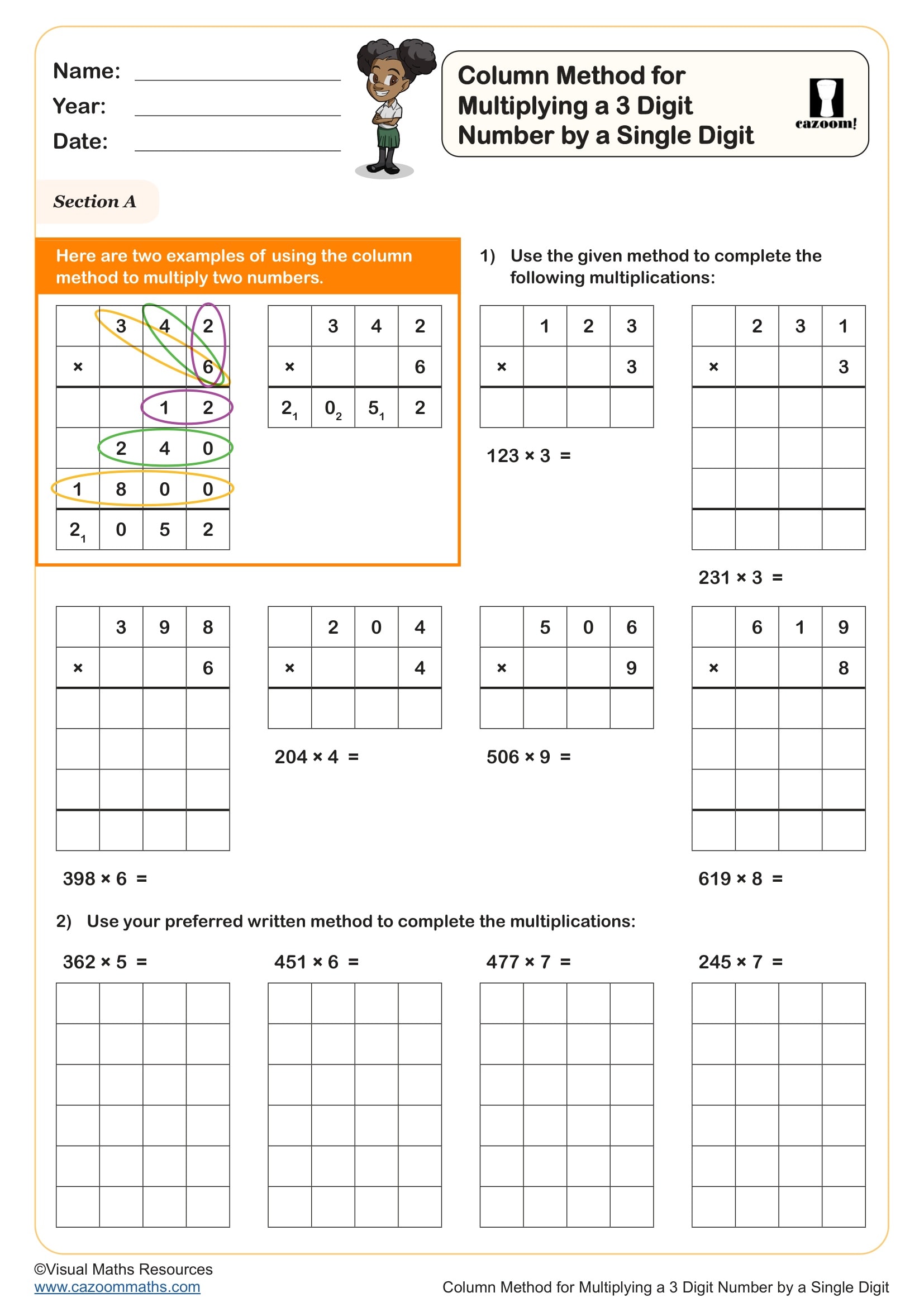
Cube Numbers
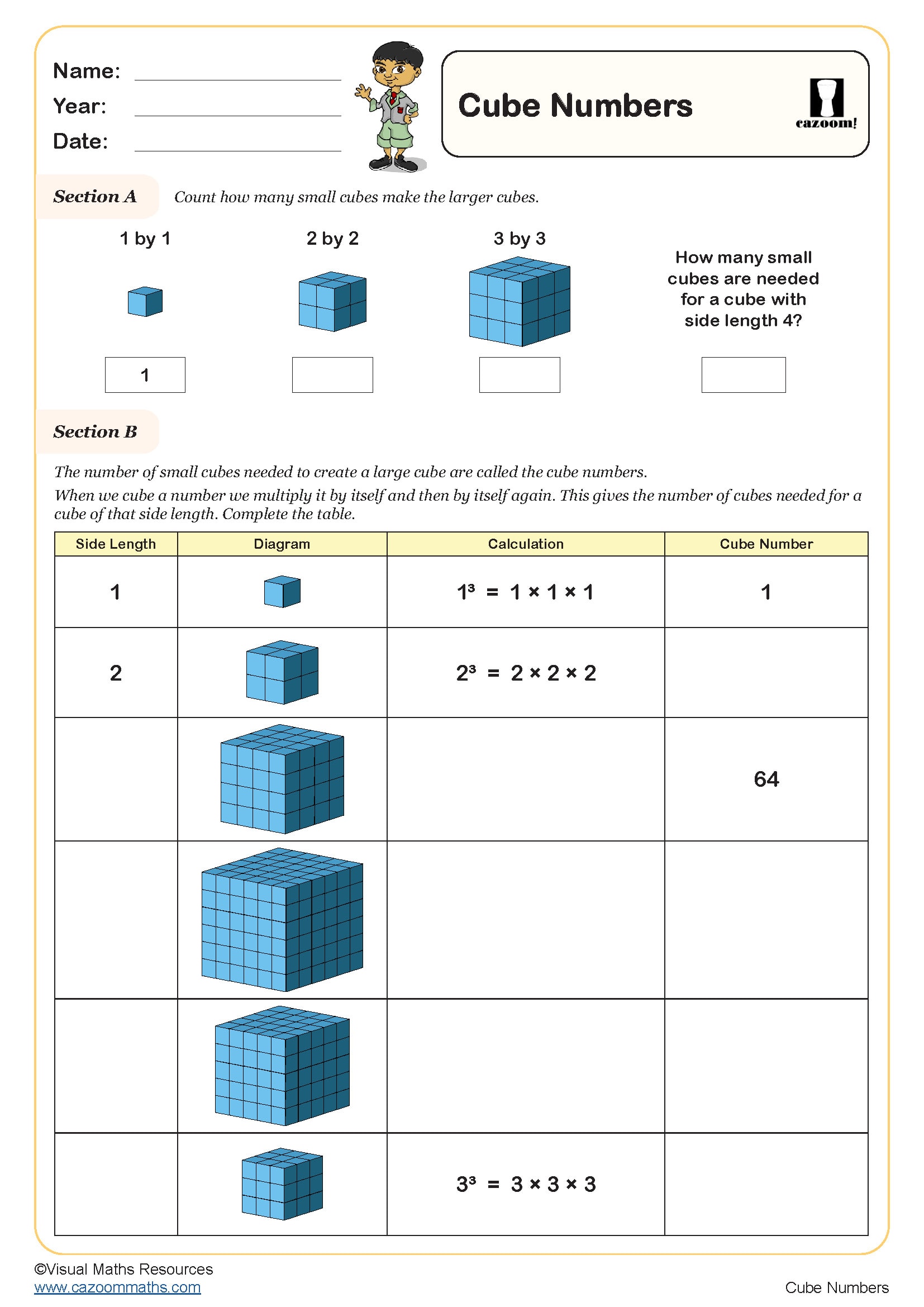
Divide Decimals by Integers (A)
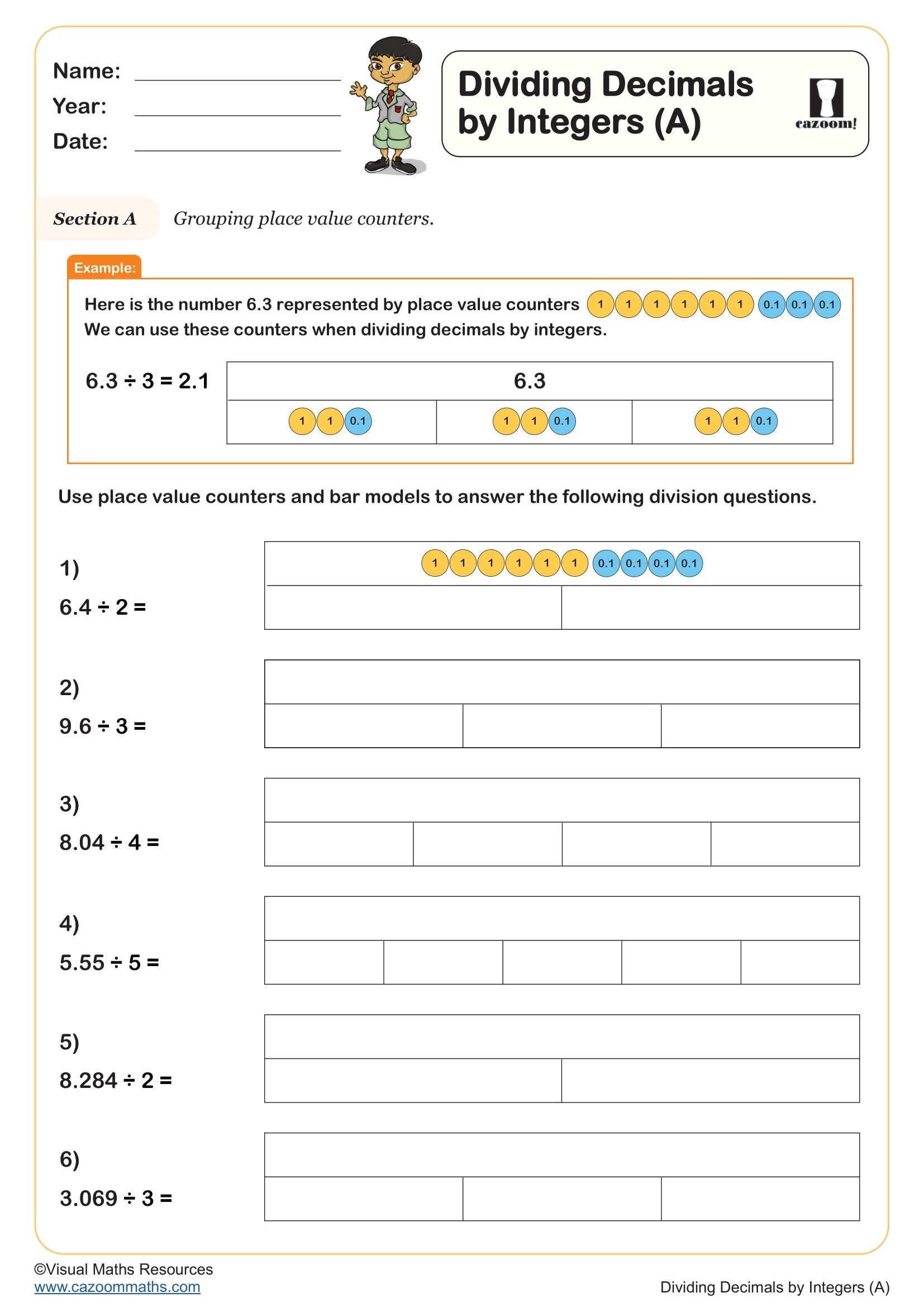
Divide Decimals by Integers (B)
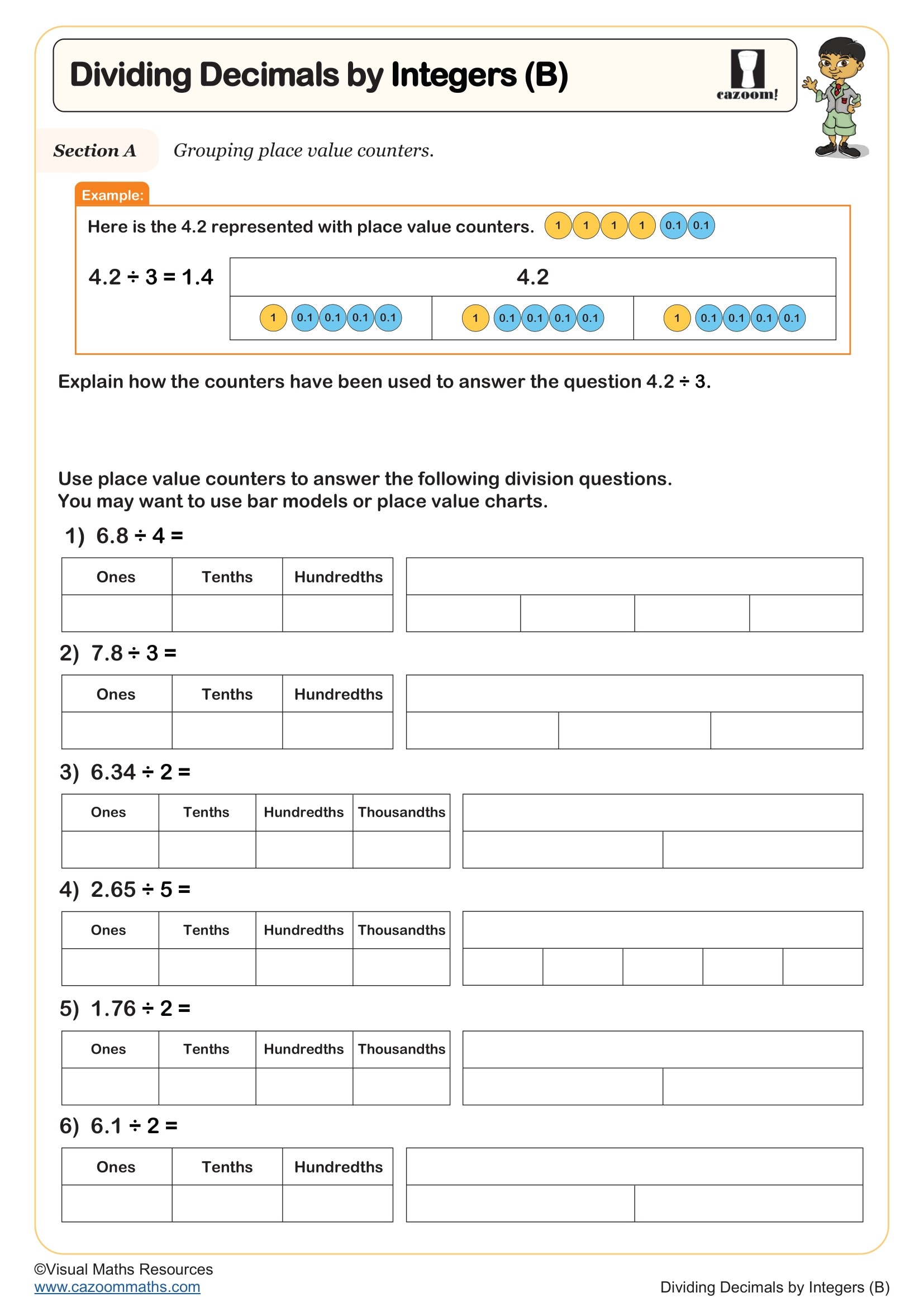
Factors (A)
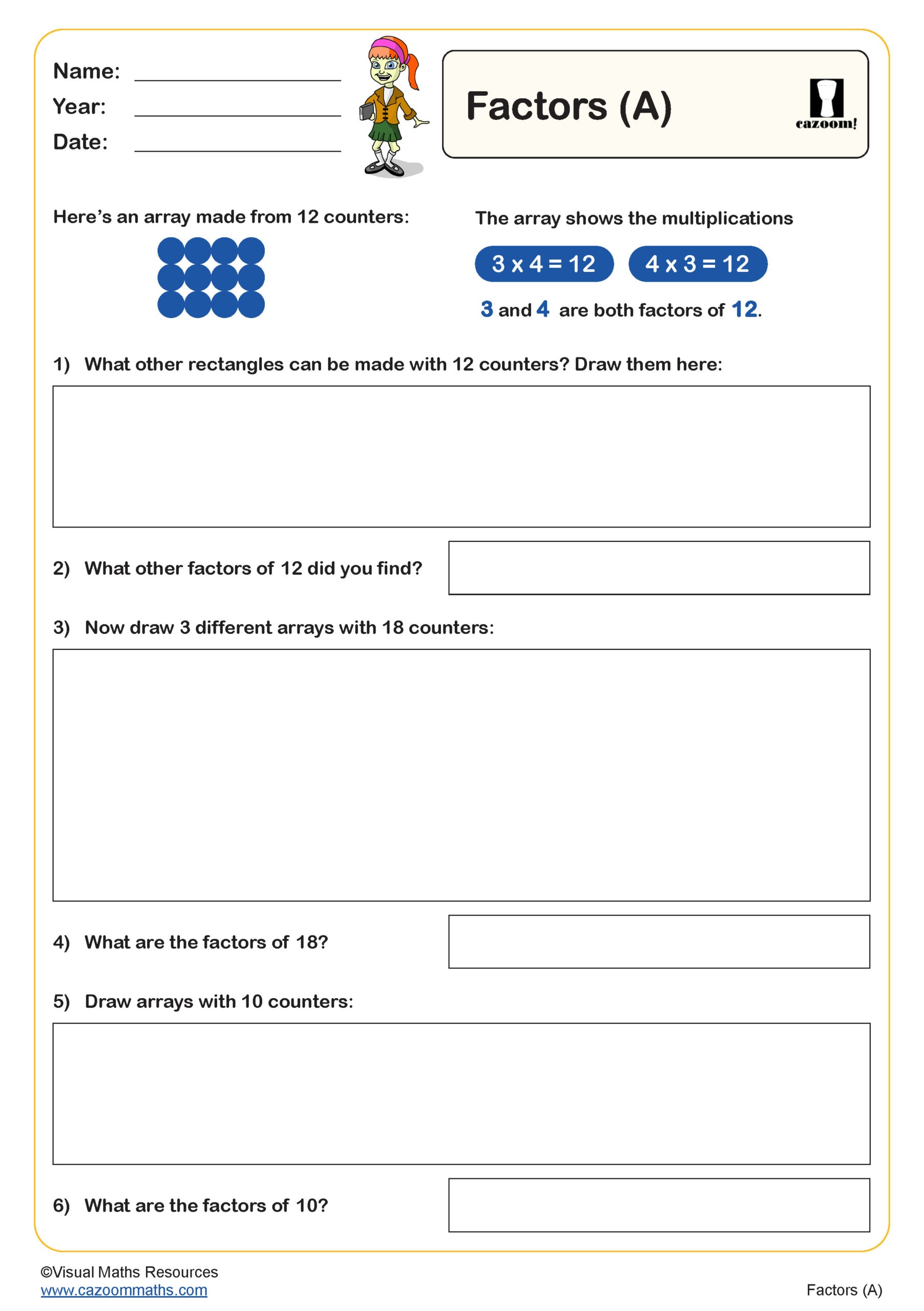
Factors (B)
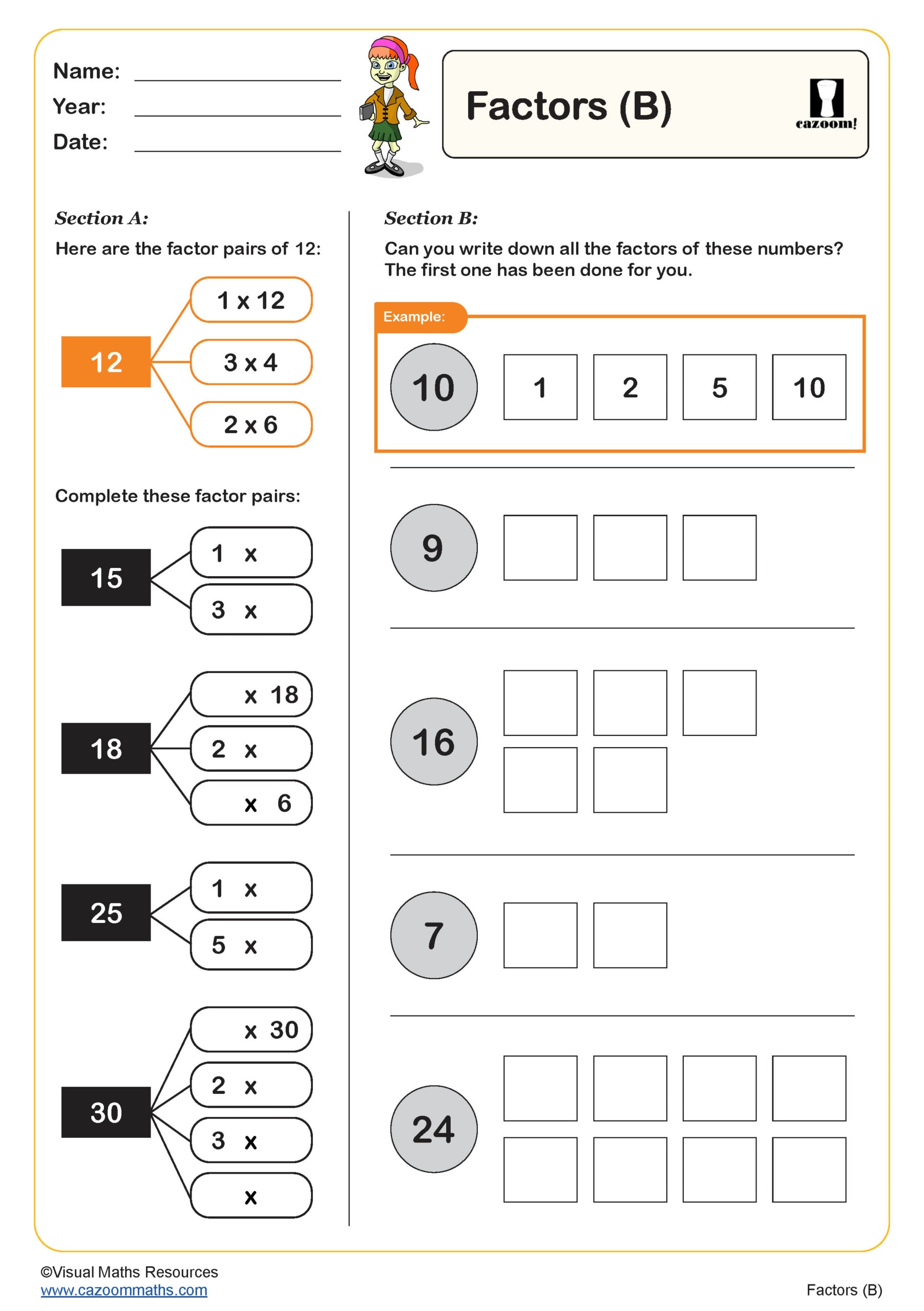
Factors and Multiples
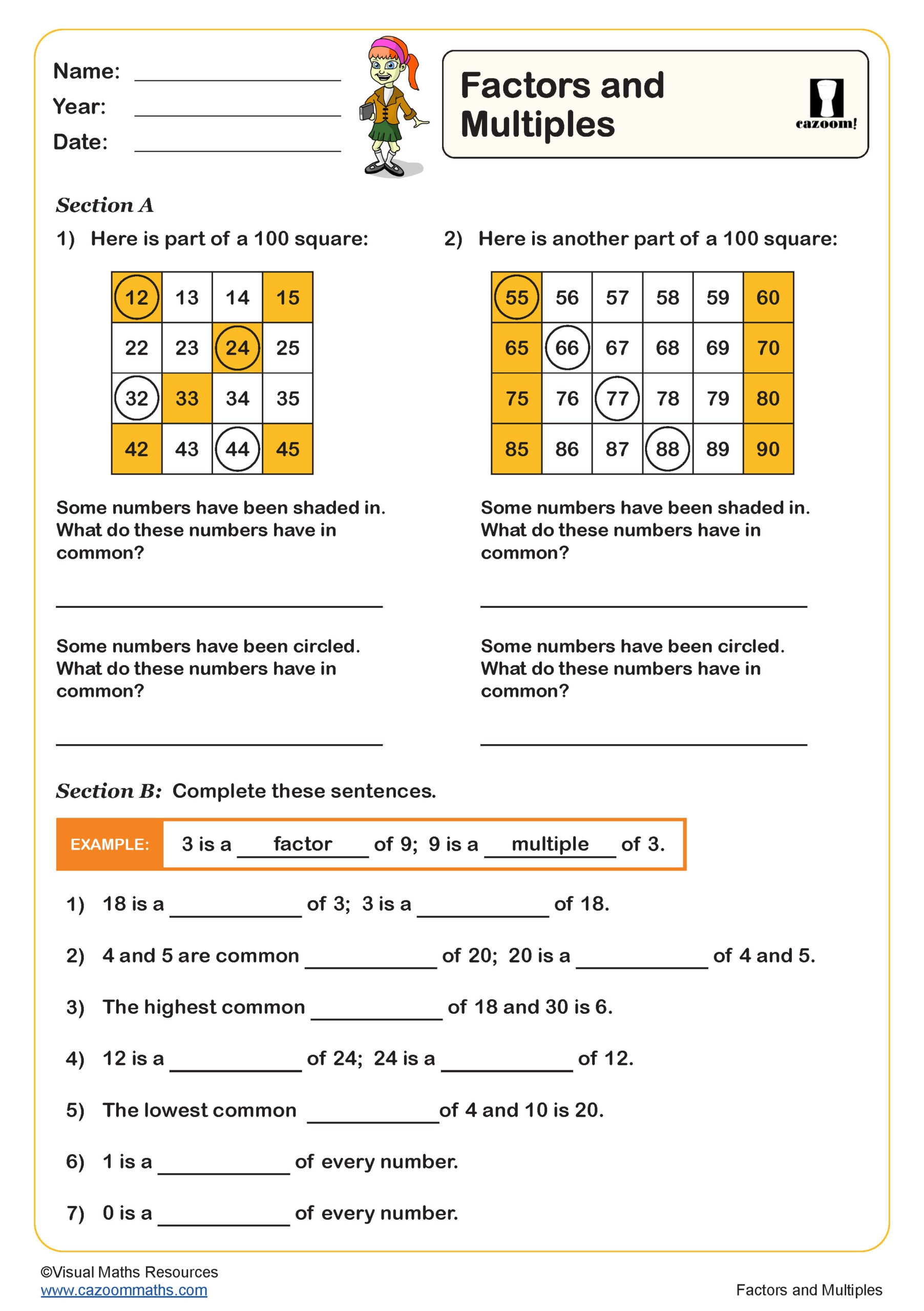
Four Operation Word Problems (A)
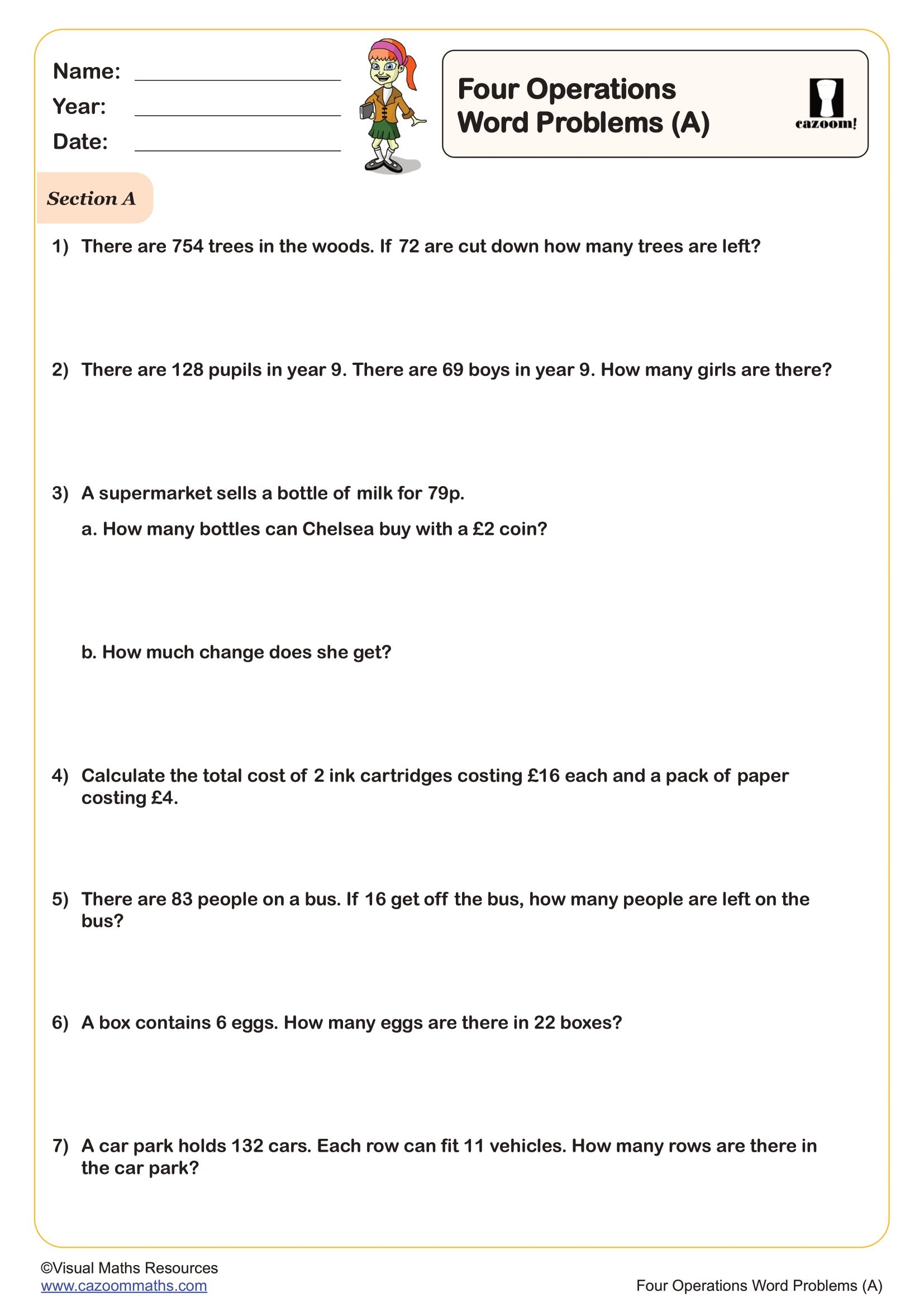
Four Operation Word Problems (A) with clues
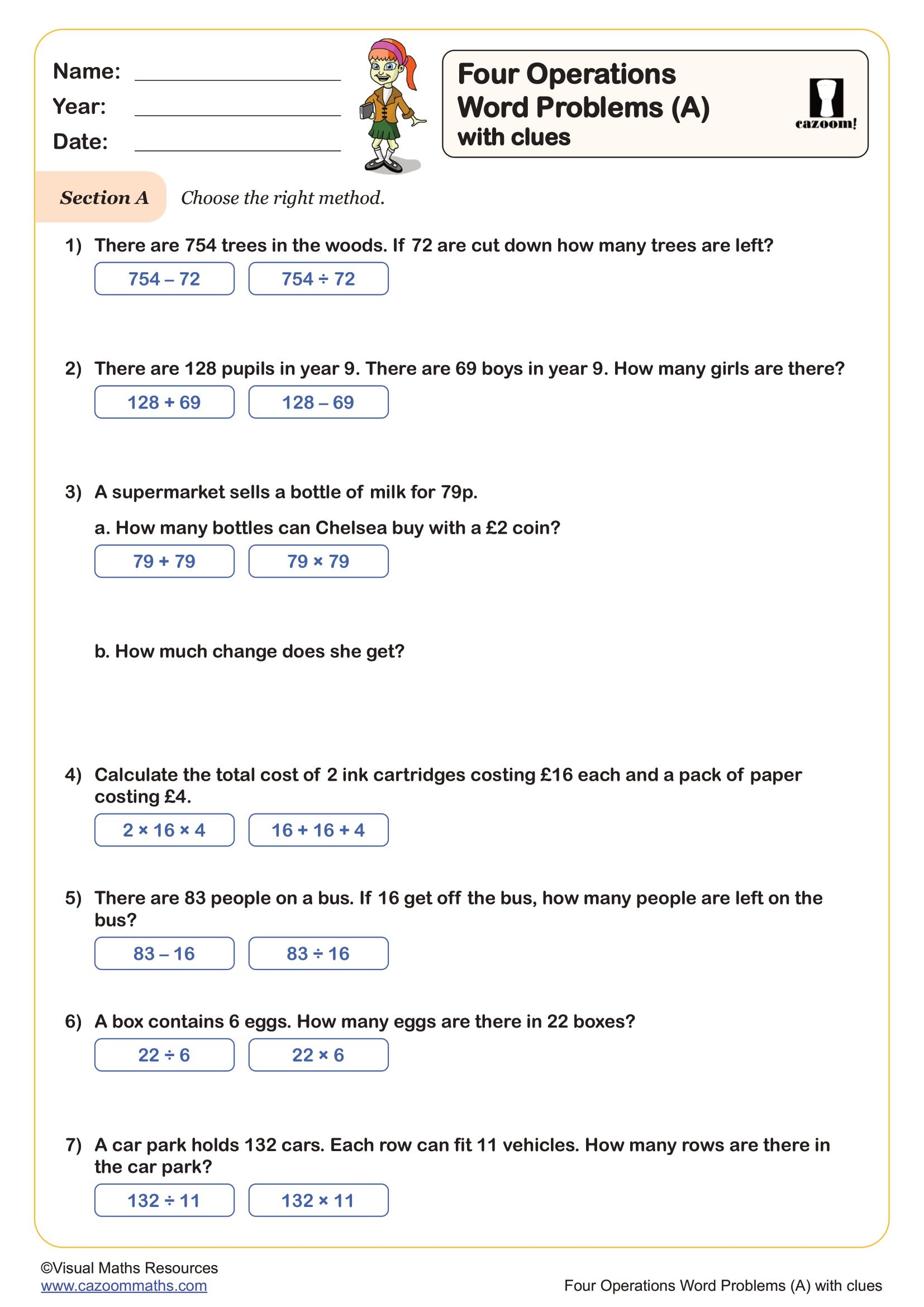
Identifying Prime Numbers
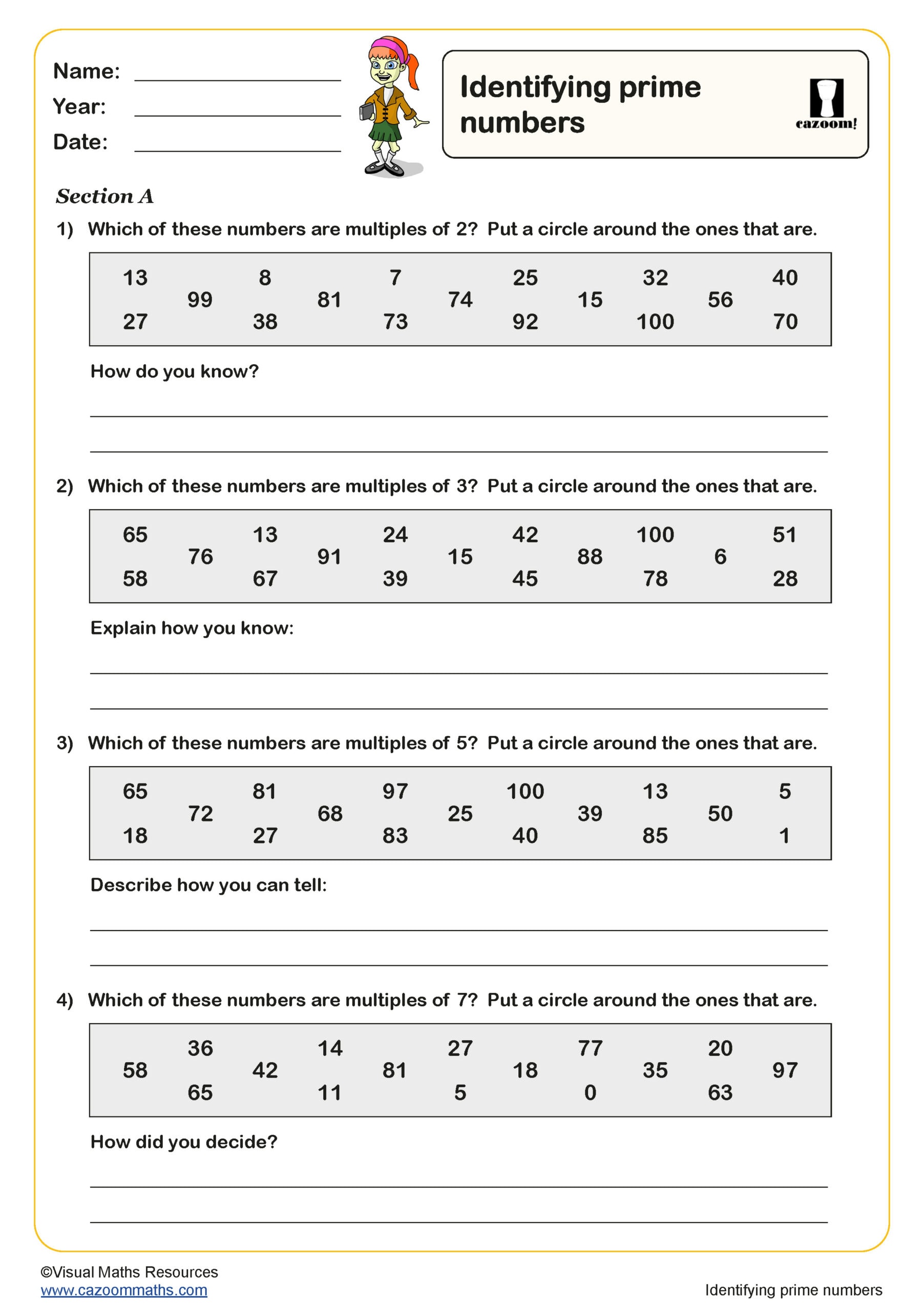
Money Problems (A)
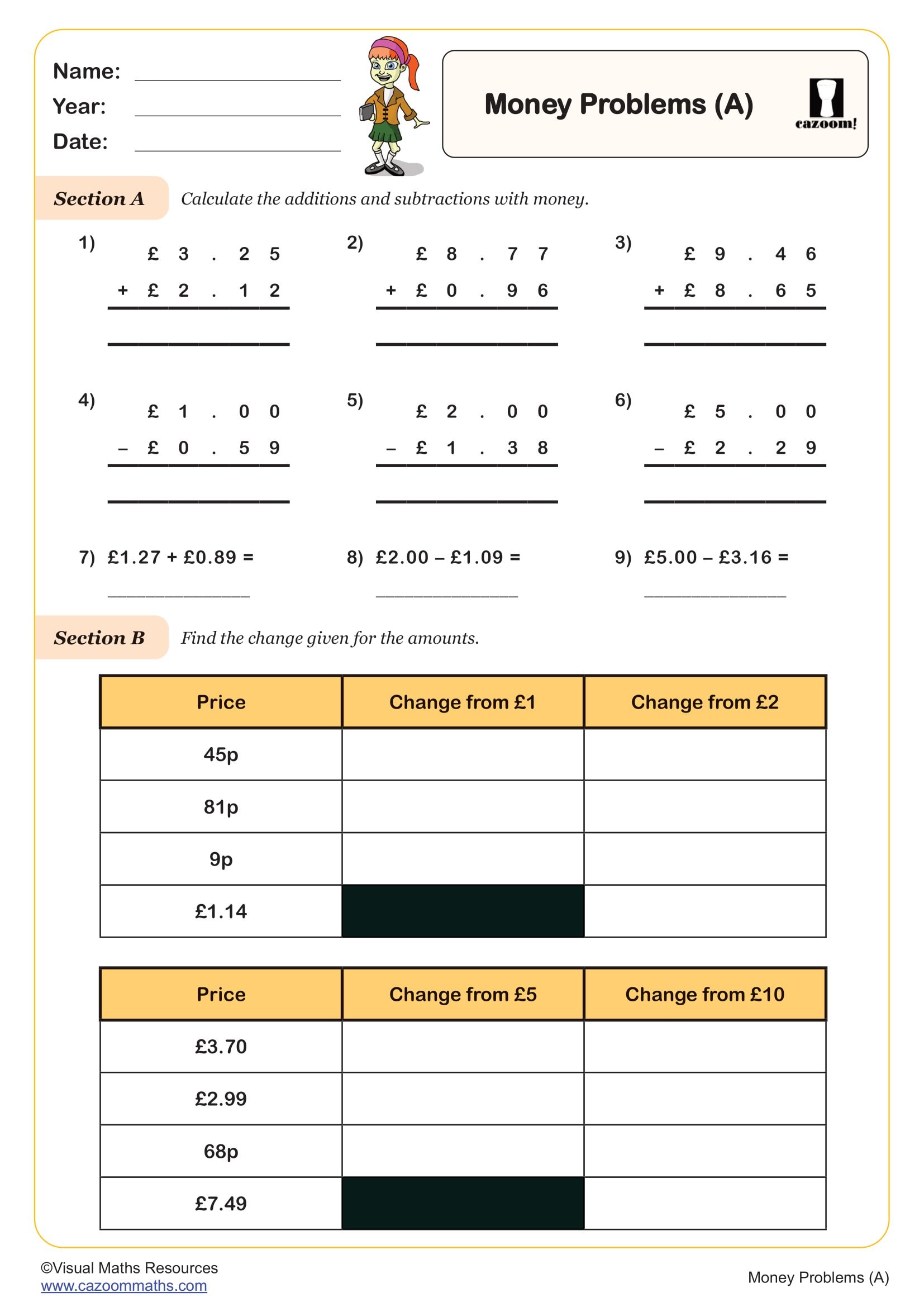
Multiples
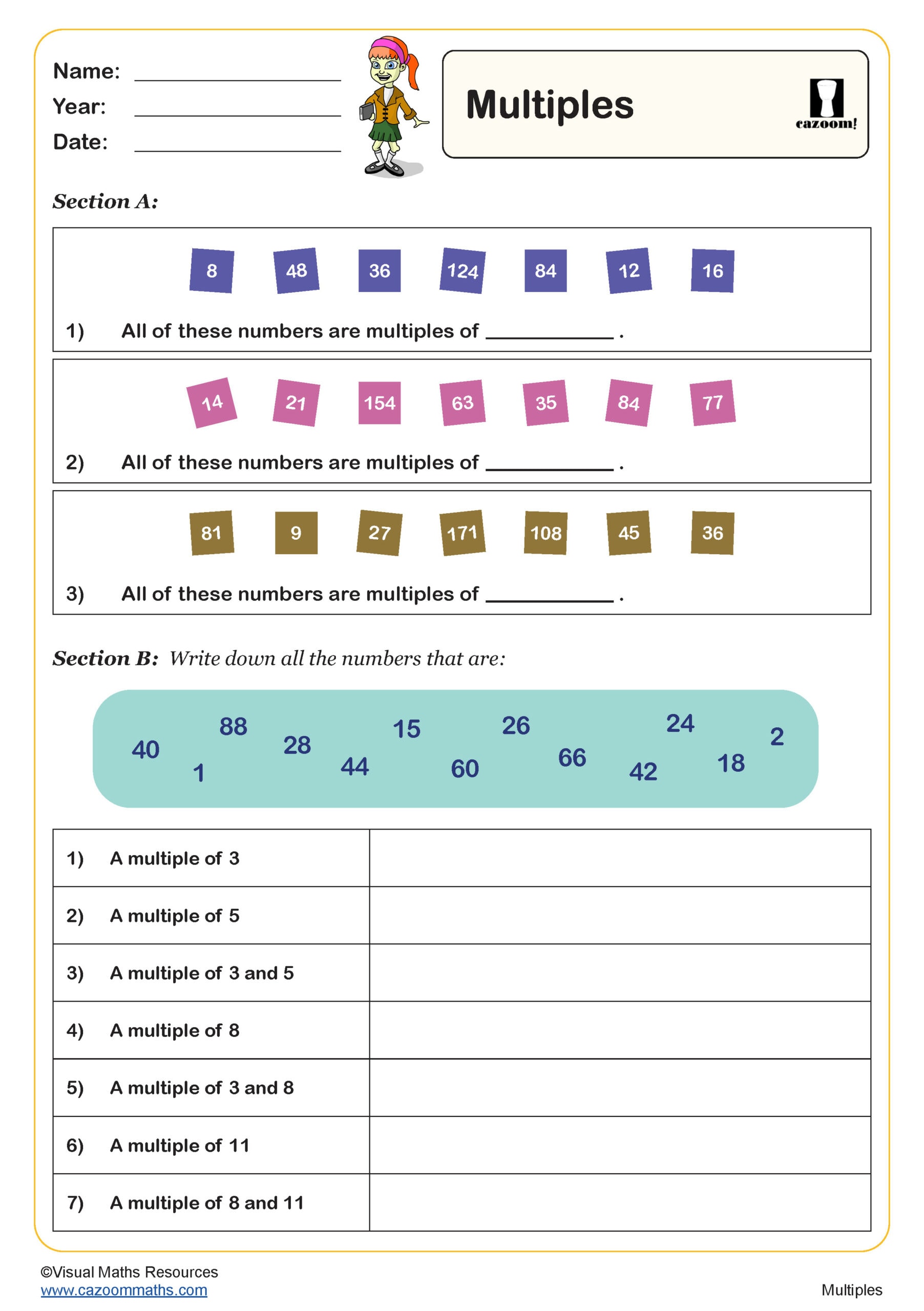
Multiply and Divide by 10 Codebreaker
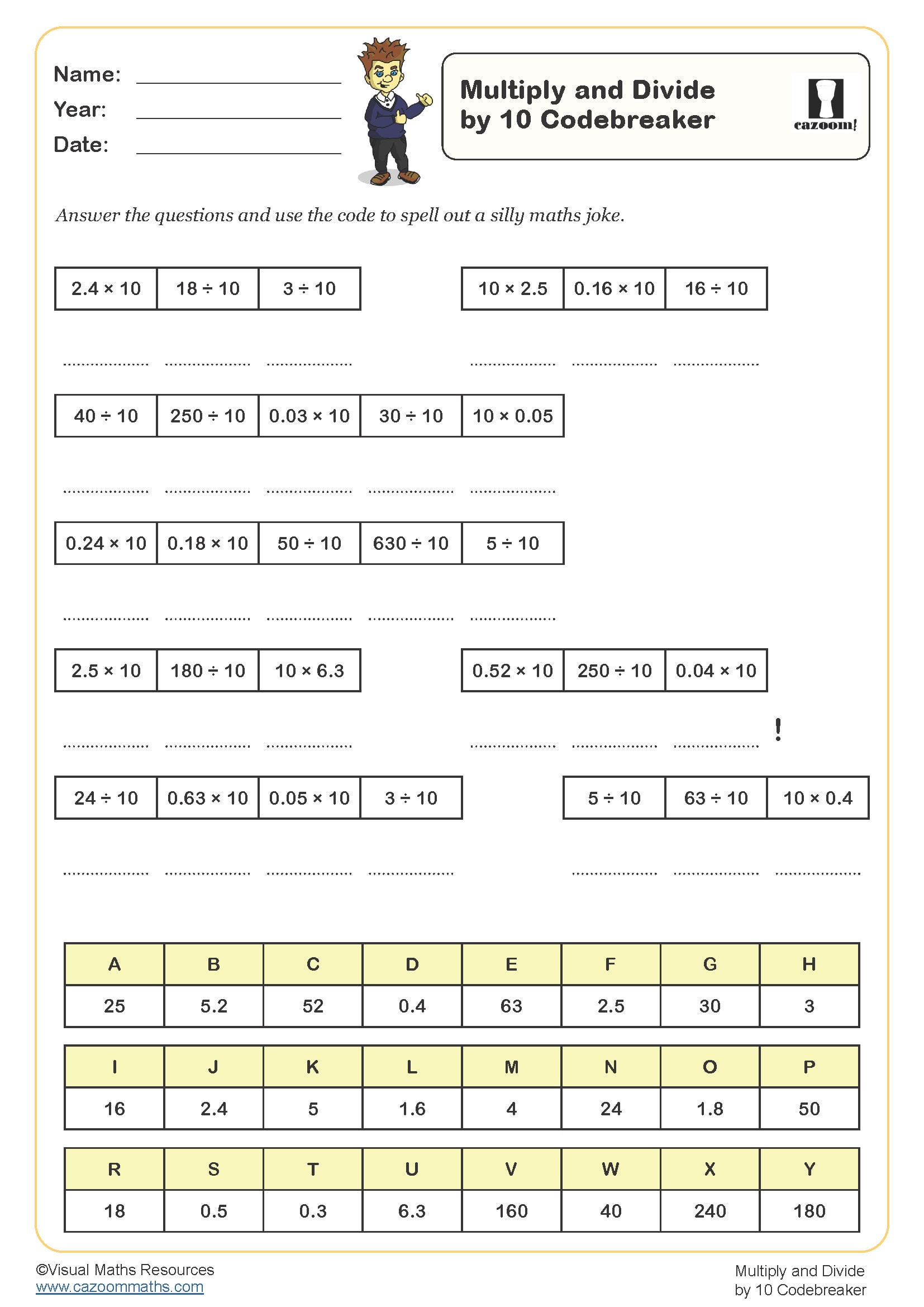
Multiply and Divide by 100 Codebreaker
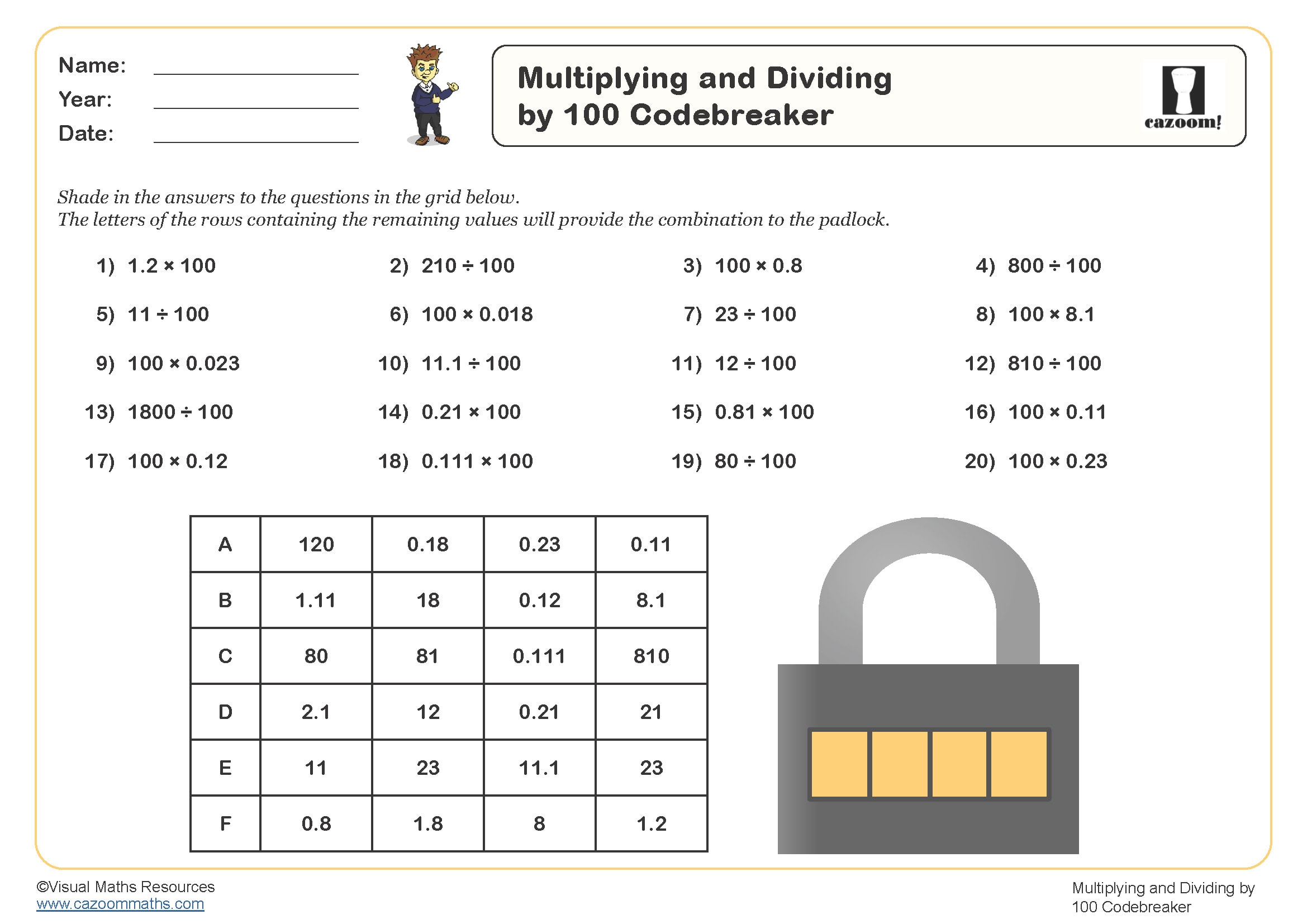
Multiply and Divide by Powers of Ten - 15 Minute Challenge
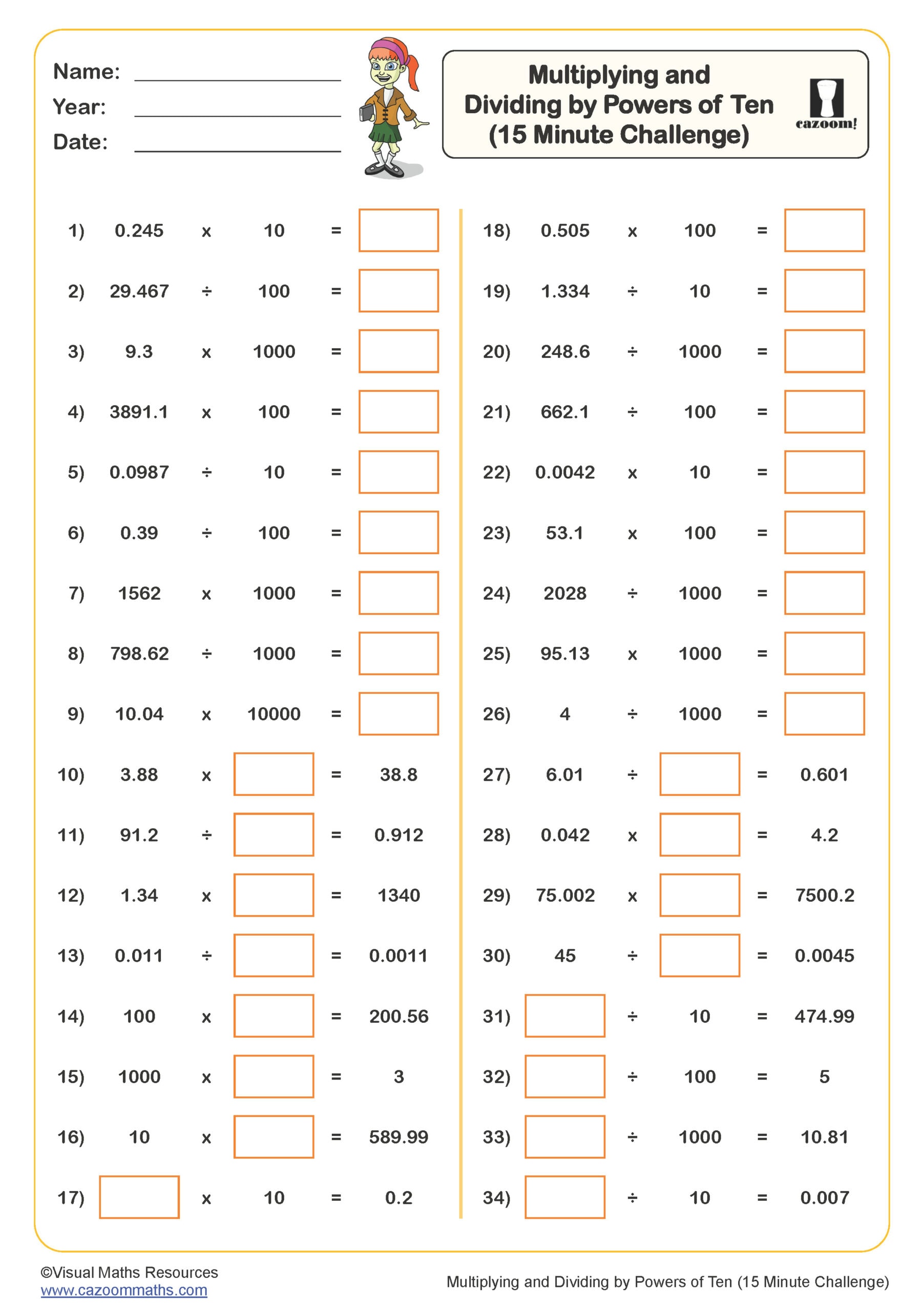
Multiply and Divide by Ten (A)
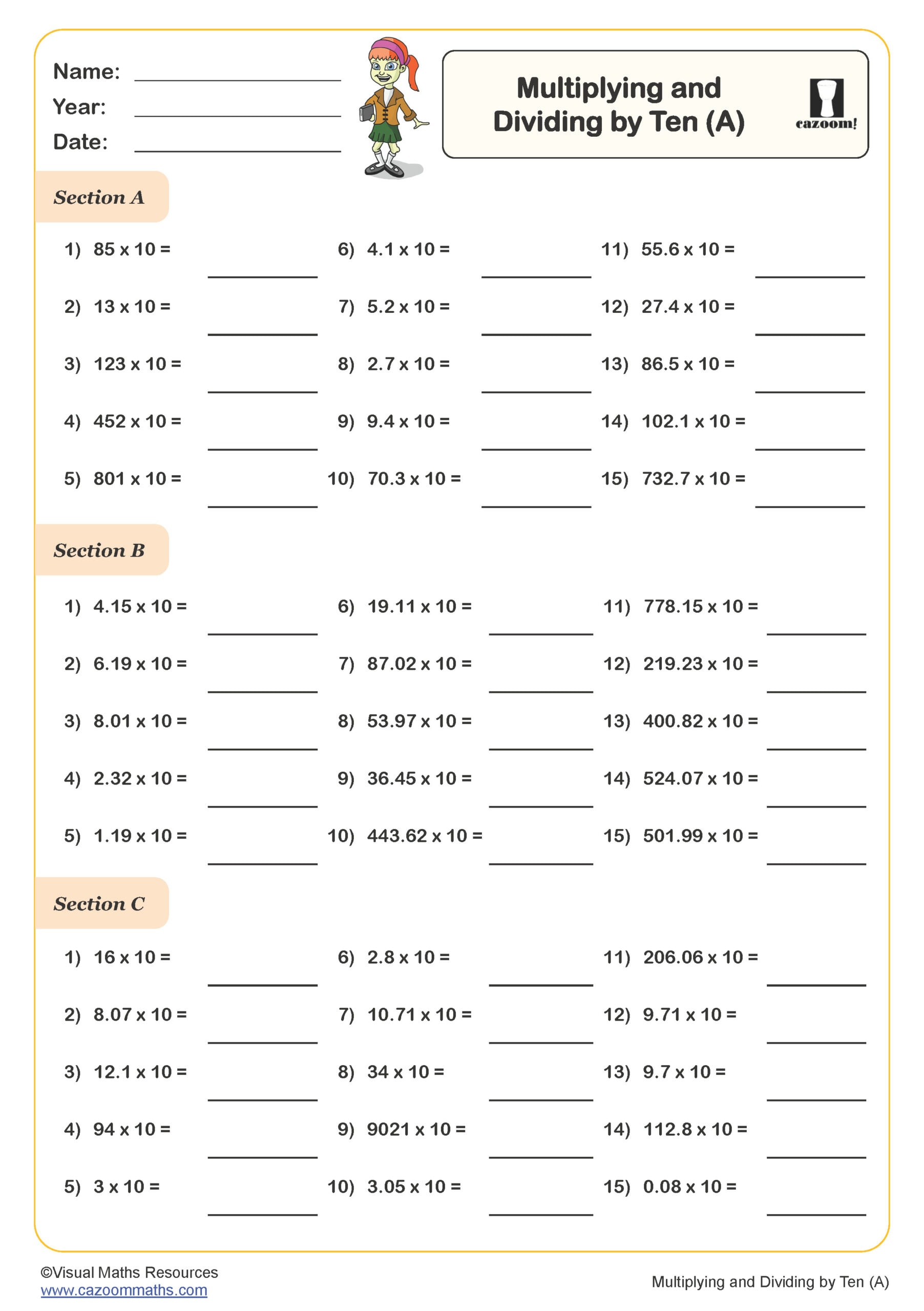
Multiplying & Dividing by Powers of Ten (B)
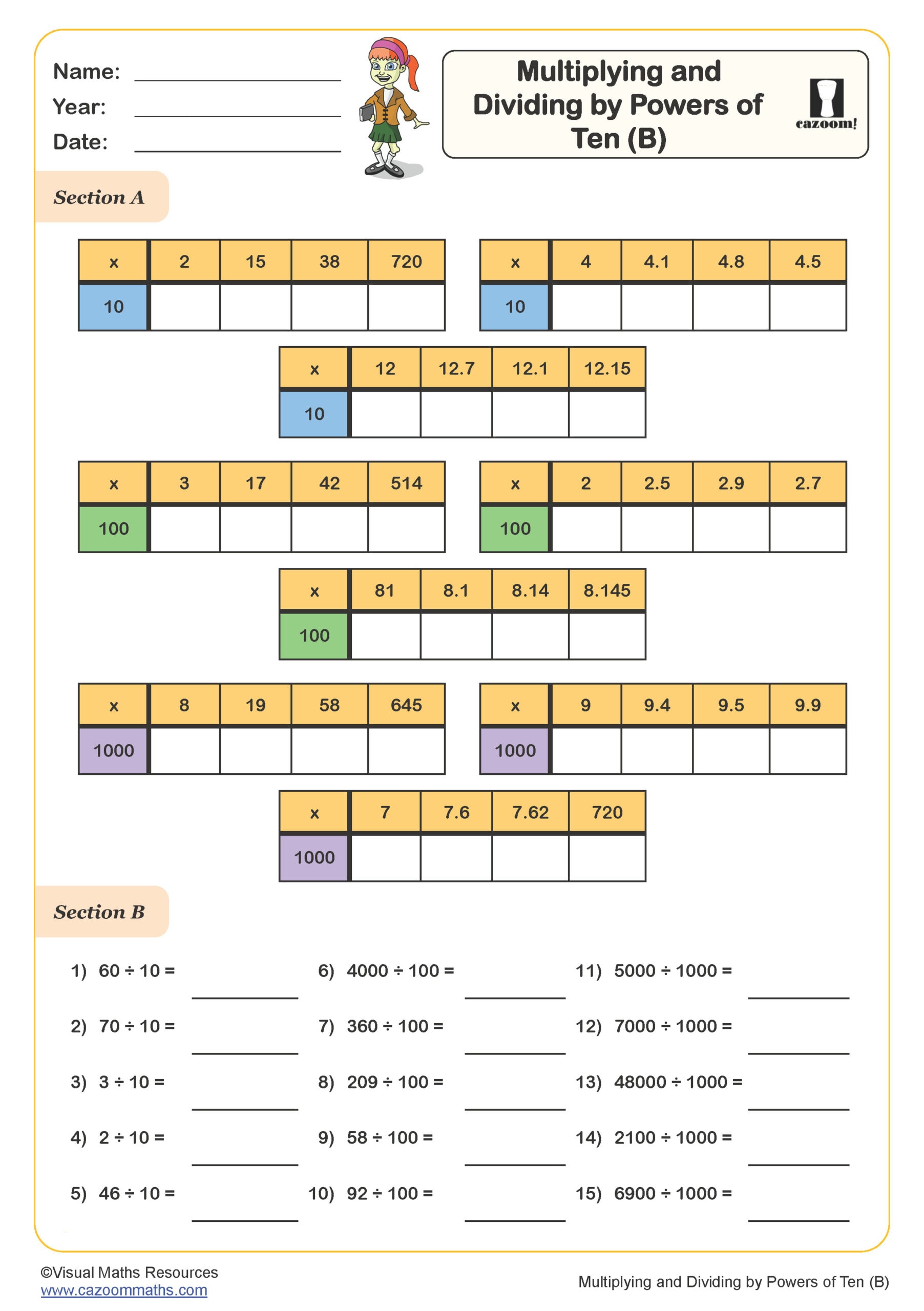
Multiplying 3 digits by 1 digit
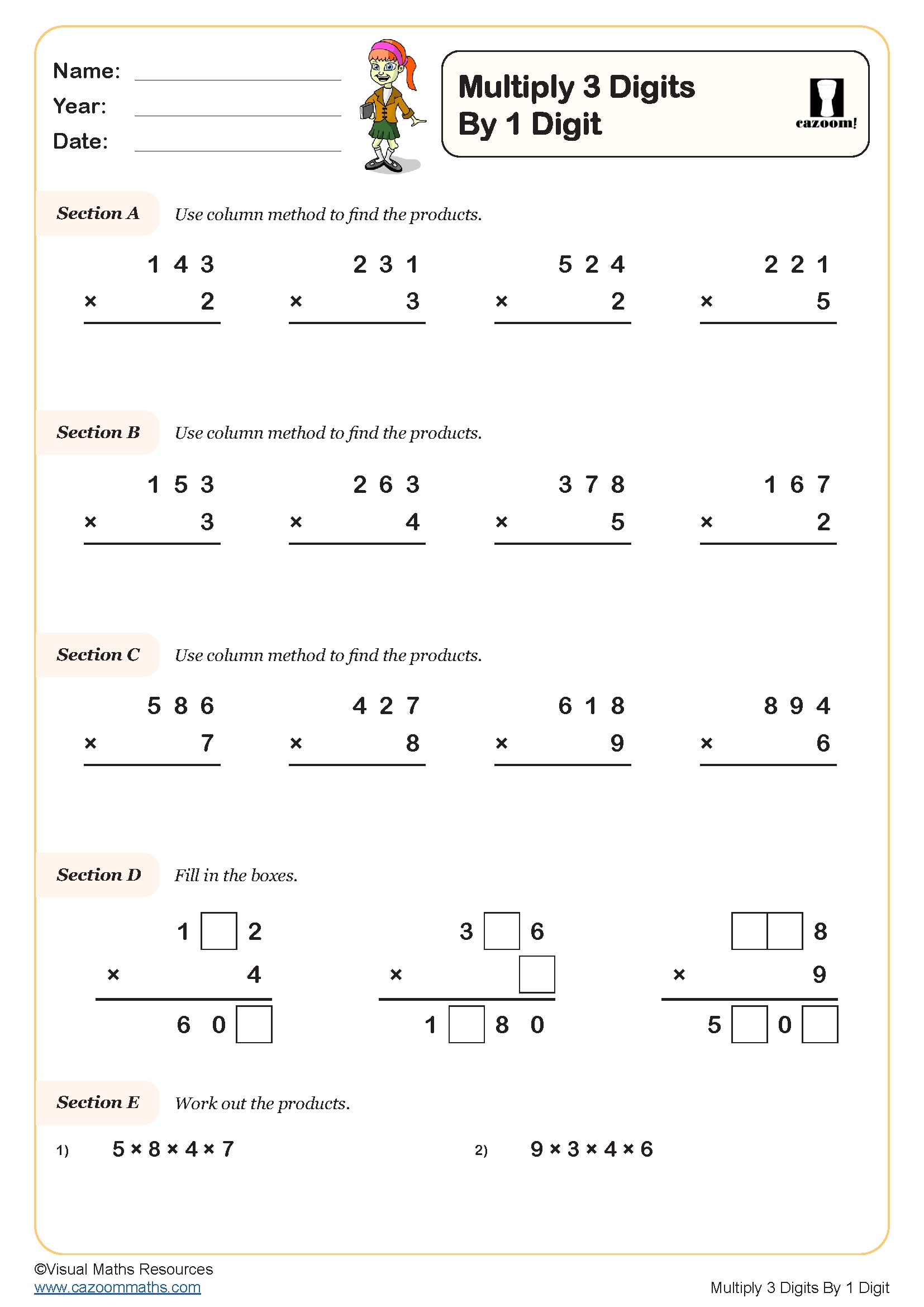
Multiplying and Dividing by 10, 100 and 1,000 Codebreaker
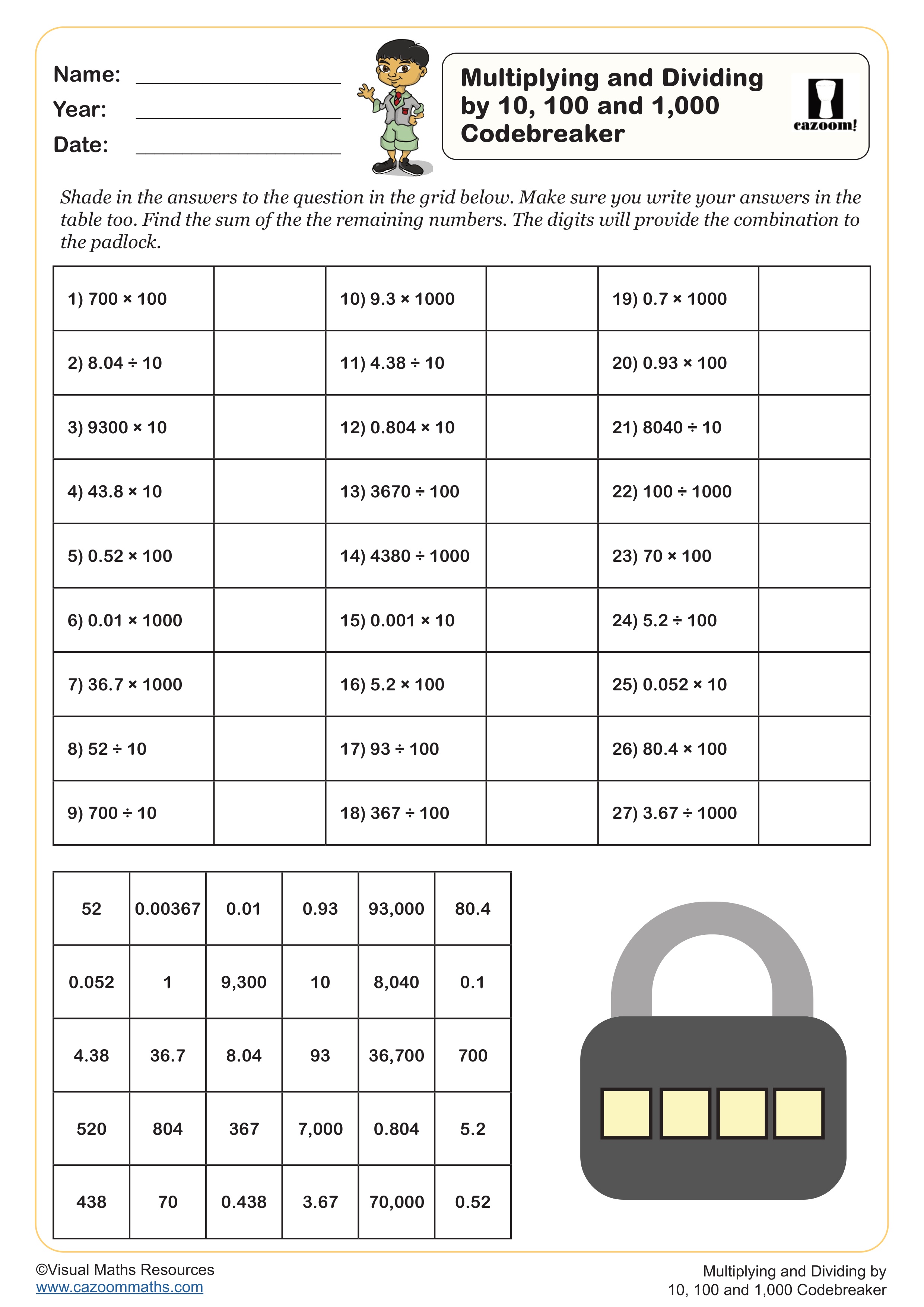
Multiplying by Two Digits Mentally
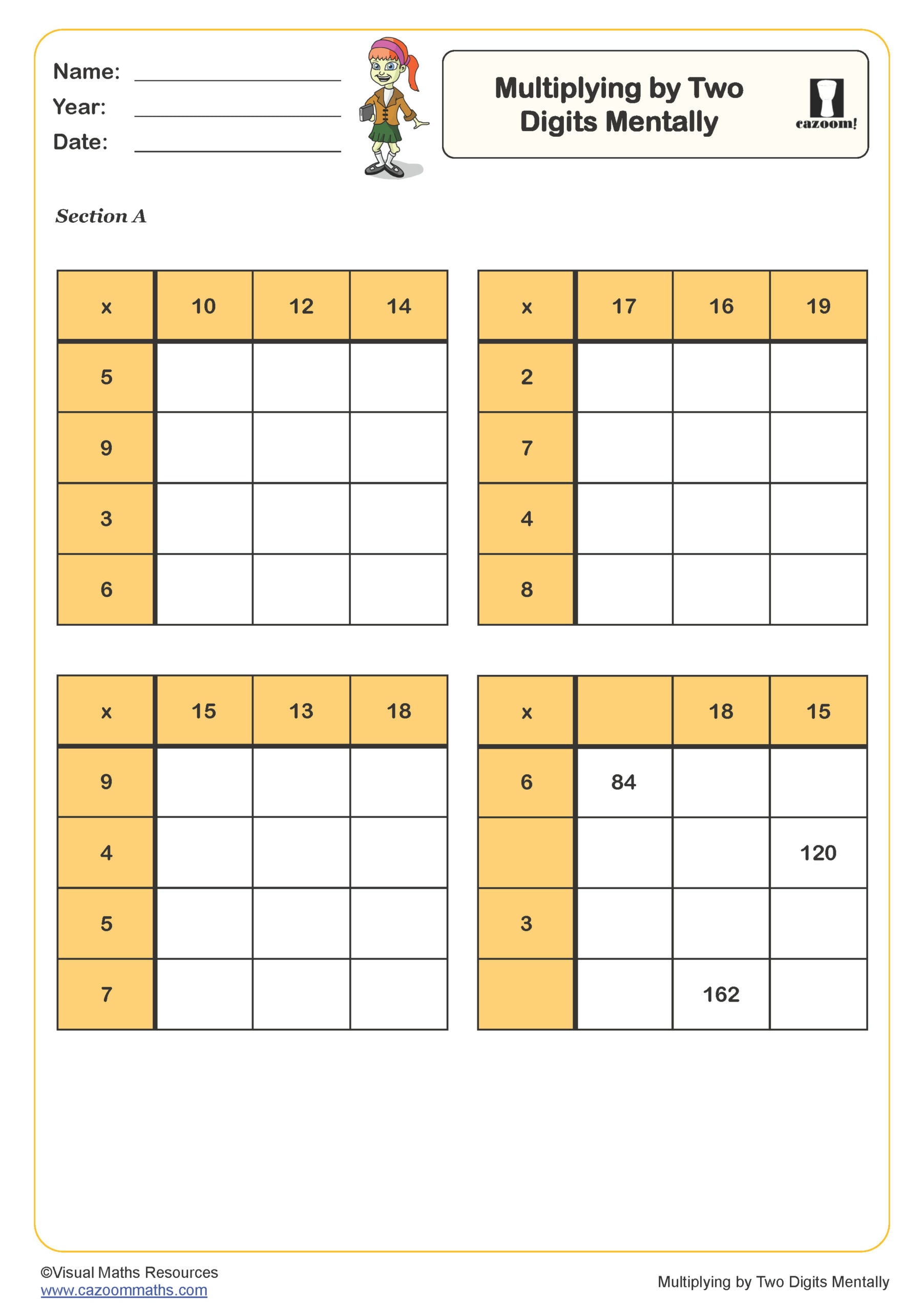
Practising the Grid Method for Short Multiplication
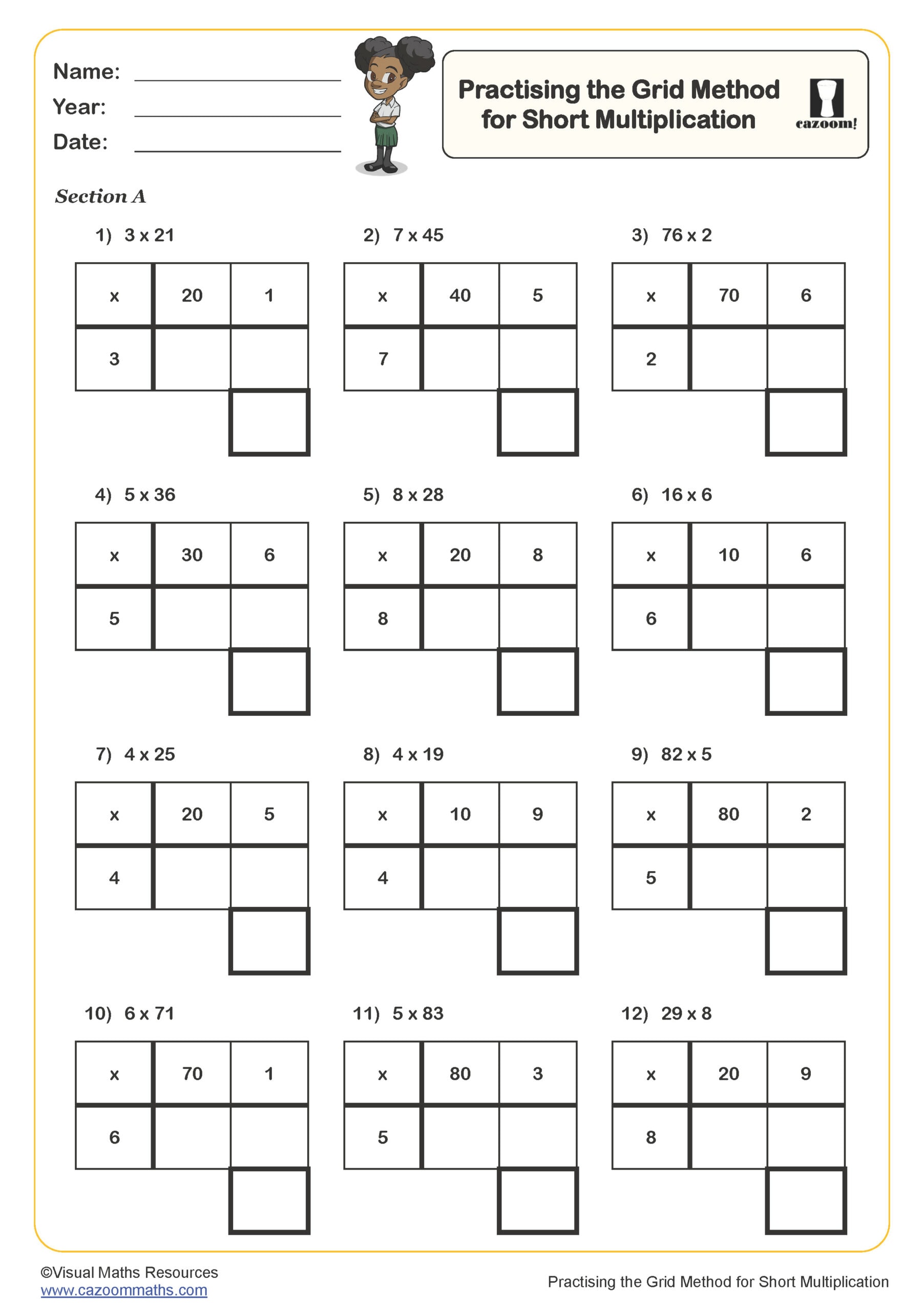
Prime Number Maze
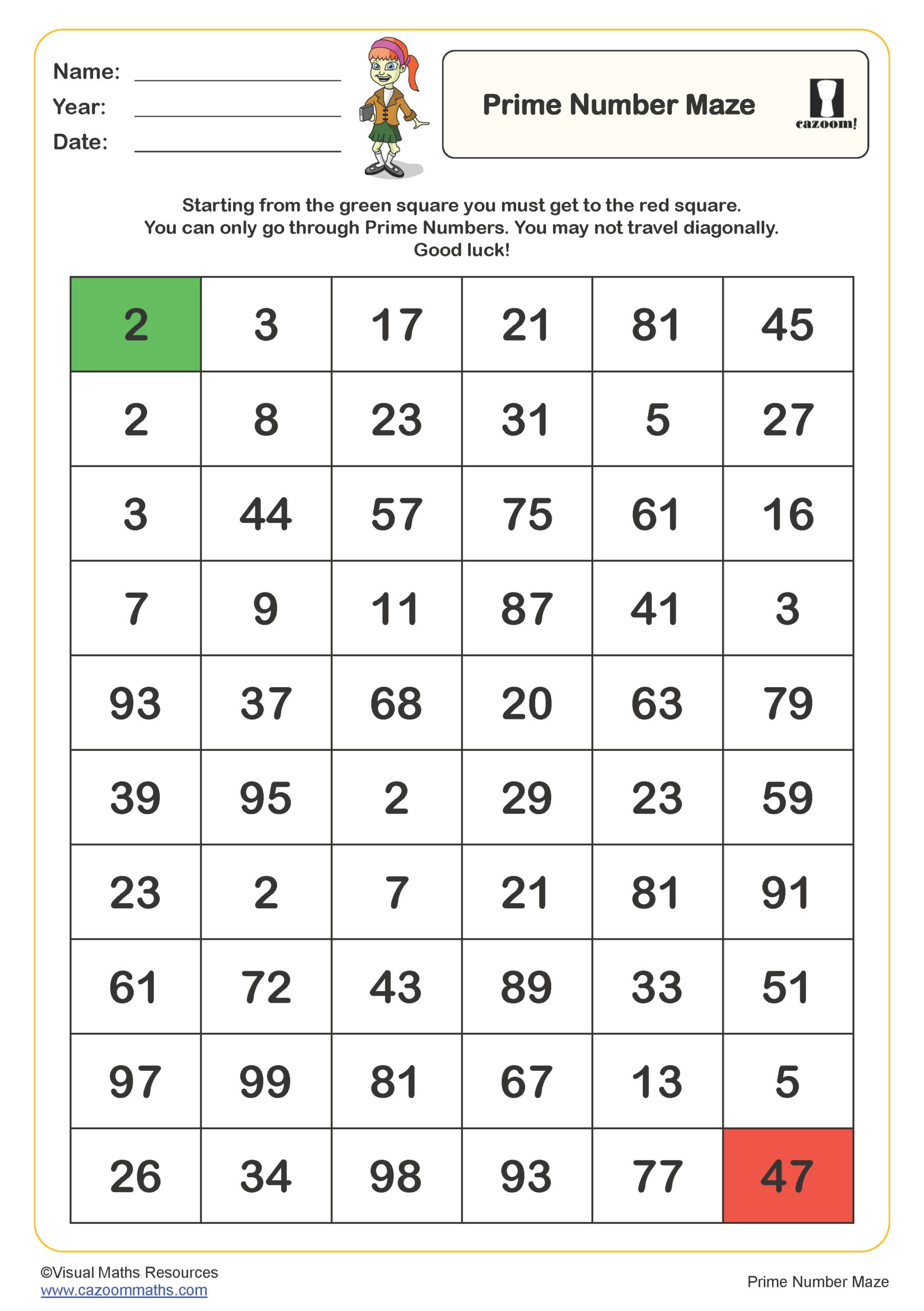
Prime Numbers
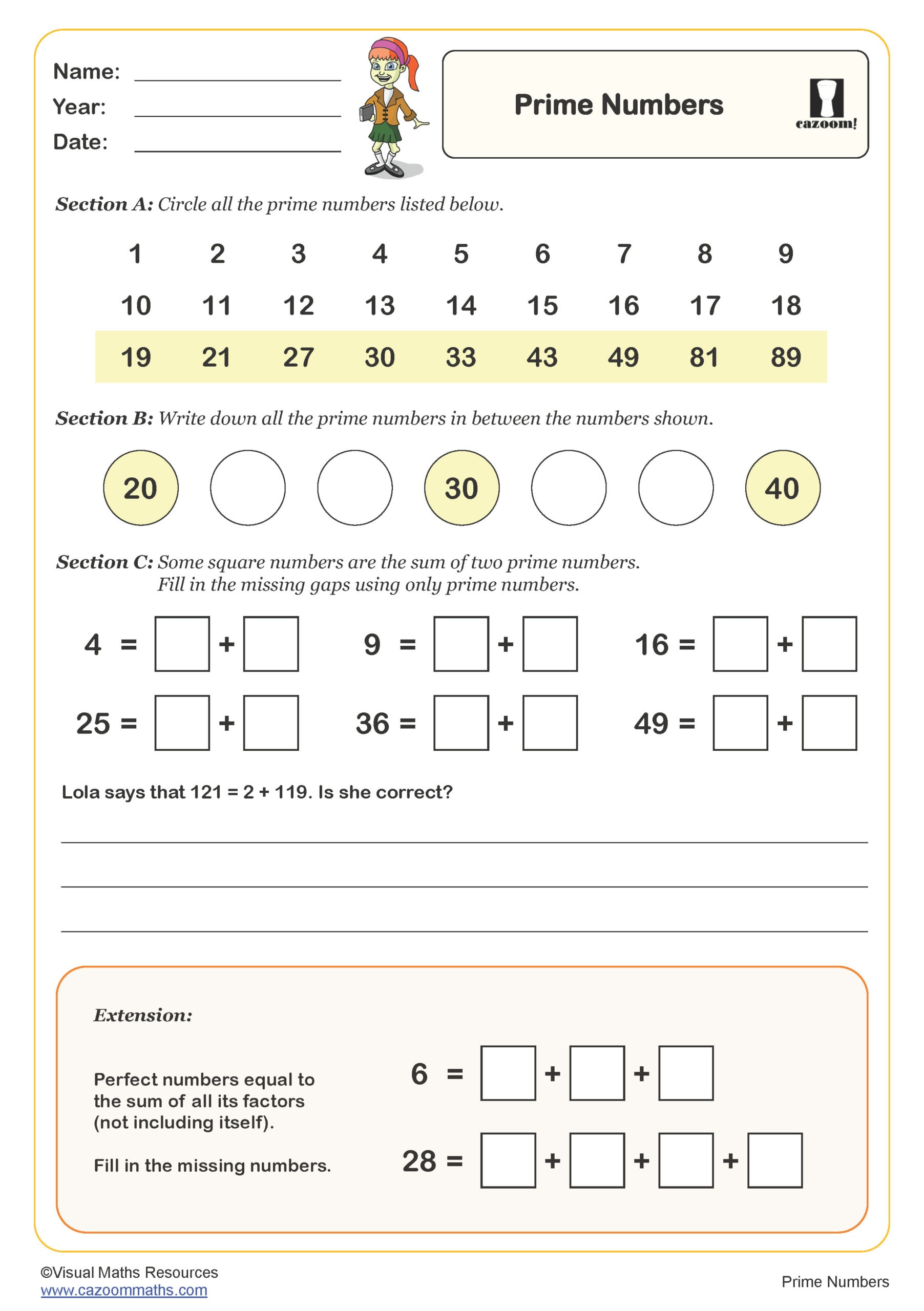
Short Division (A) Dividing 2 Digit Numbers
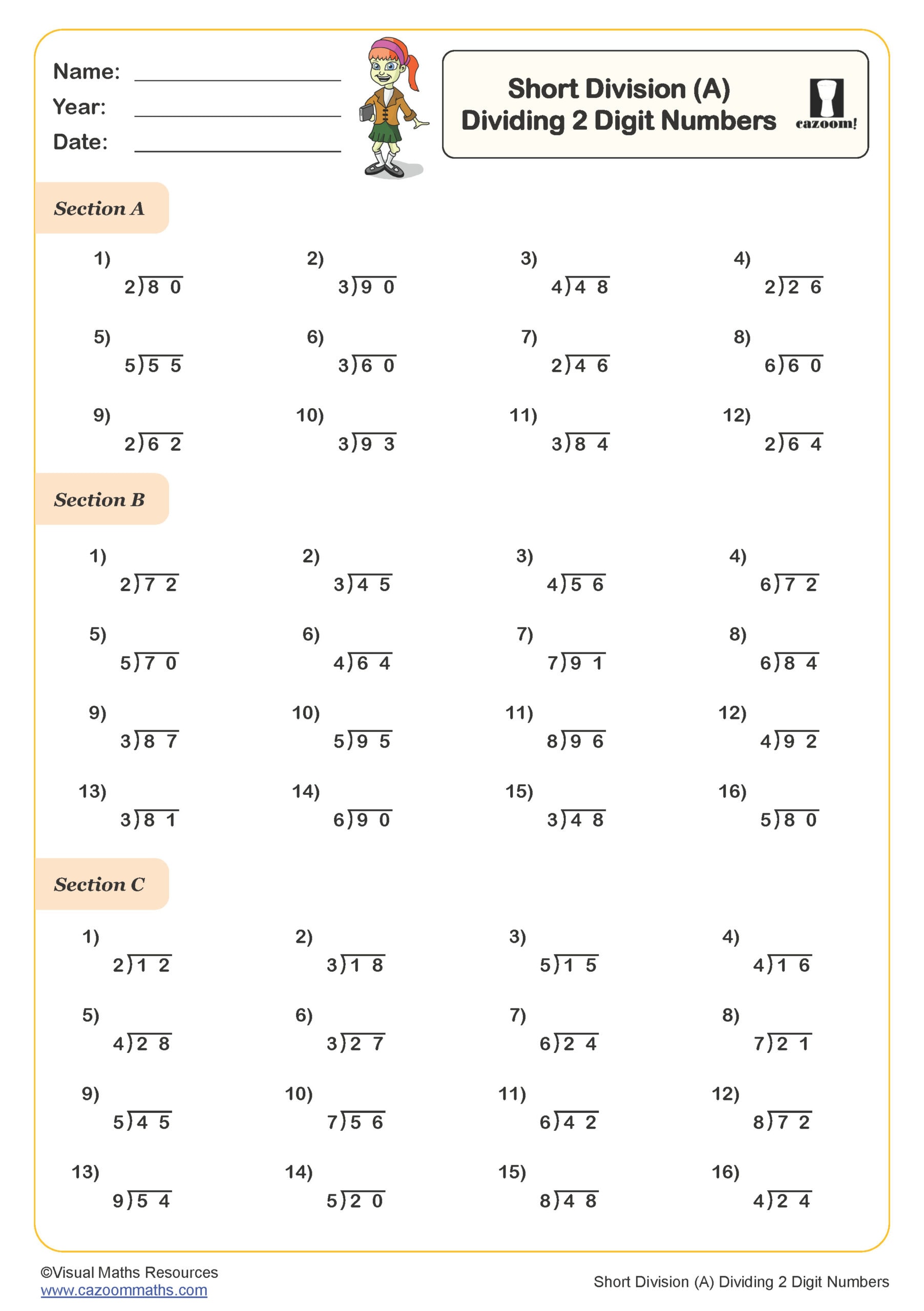
Short Division (B) Dividing 3 Digit Numbers
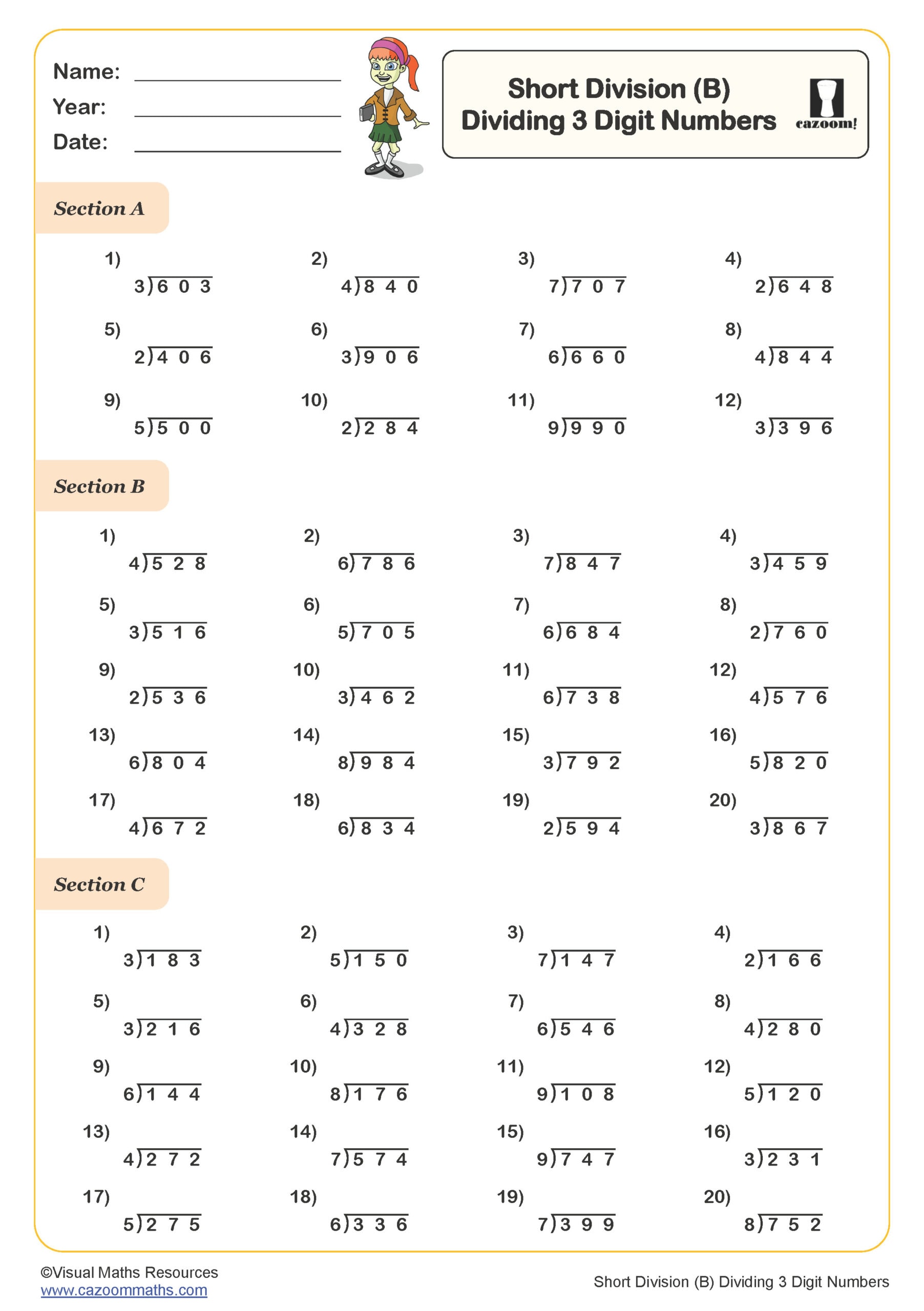
Short Division (C) Dividing 2,3 and 4 Digit Numbers
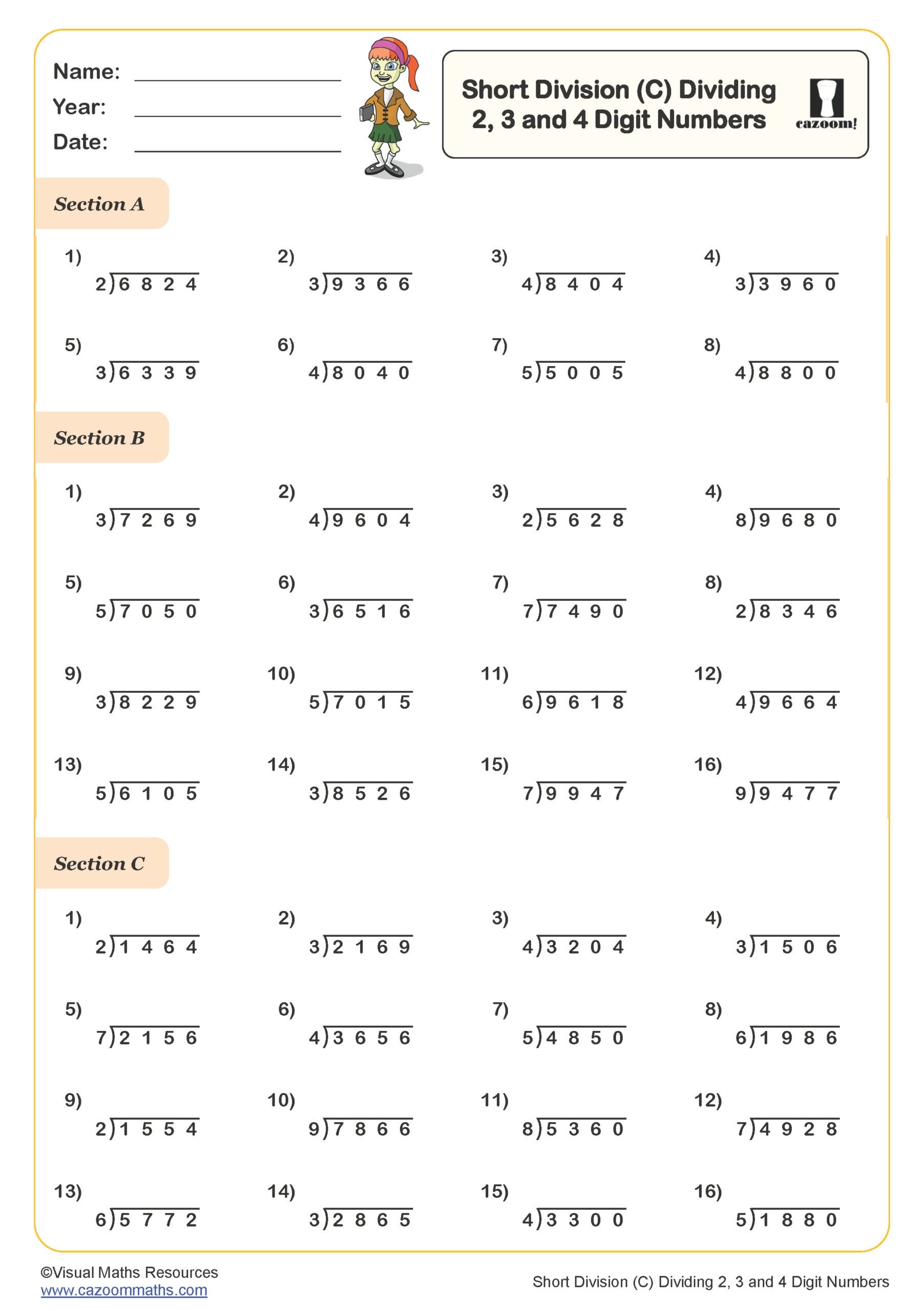
Short Division (D) Dividing 4 Digit Numbers
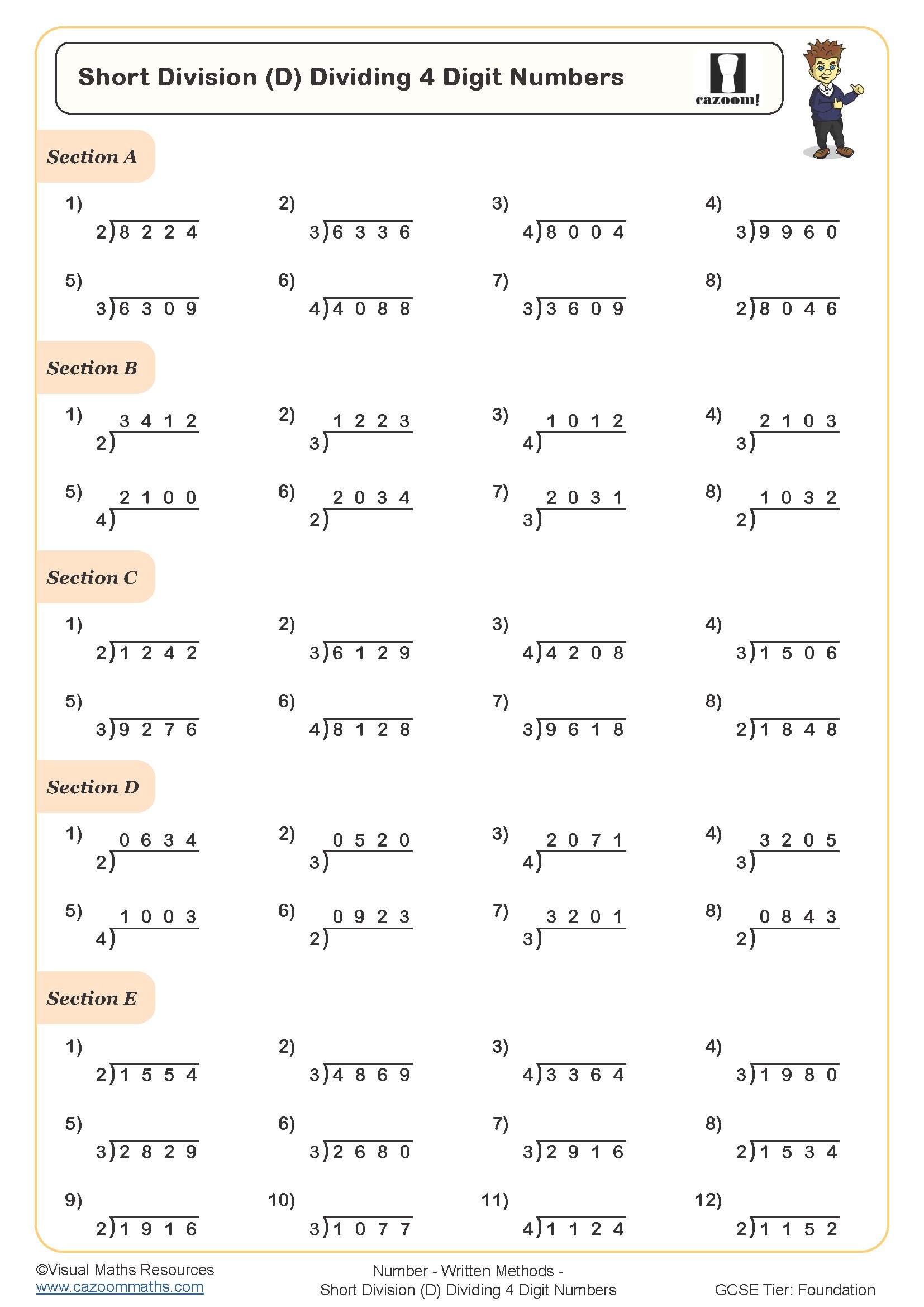
Sieve of Eratosthenes
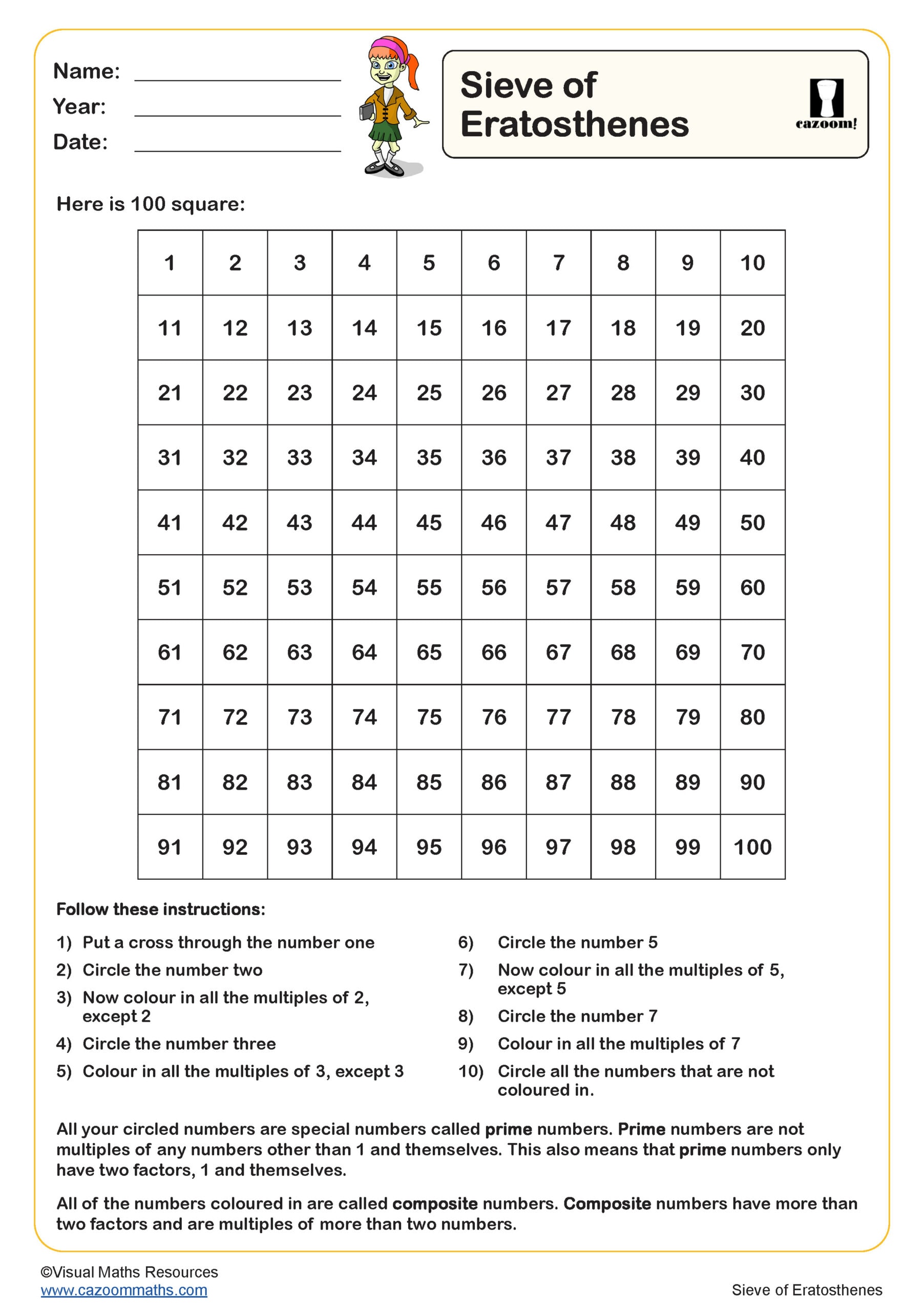
Square Numbers
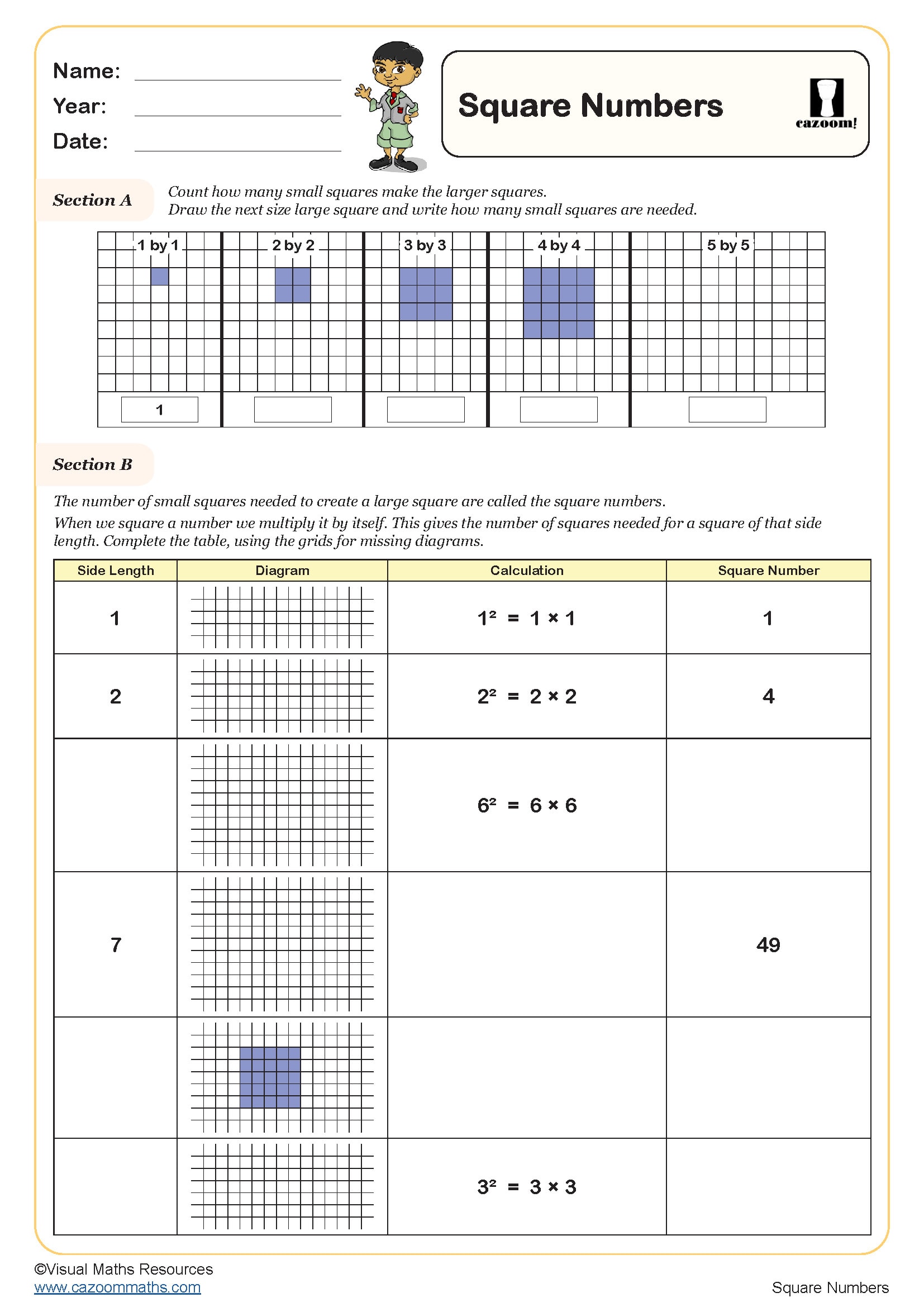
Square Numbers, Cube numbers and other Powers
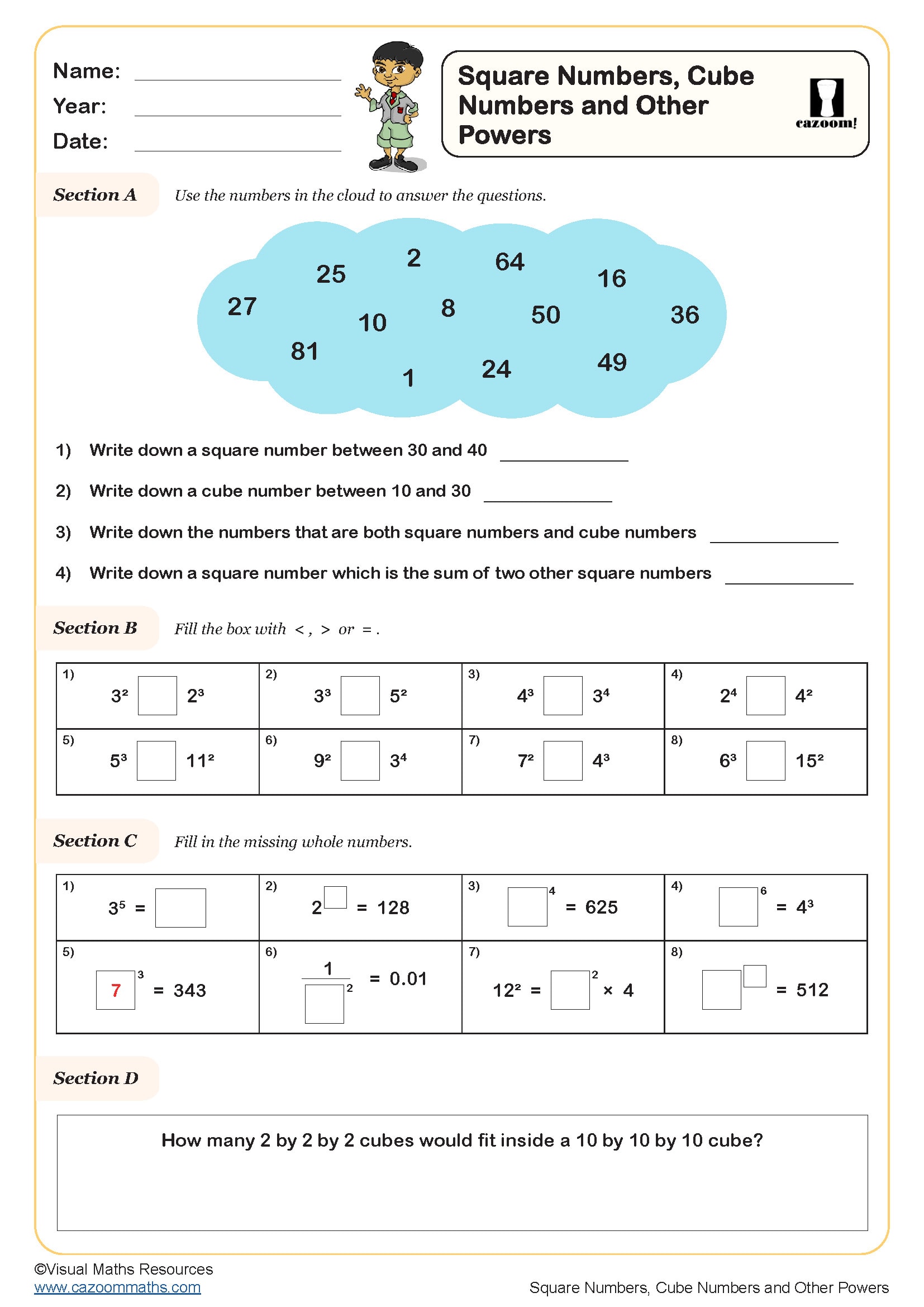
Using Inverses to Check Answers - Multiplication and Division
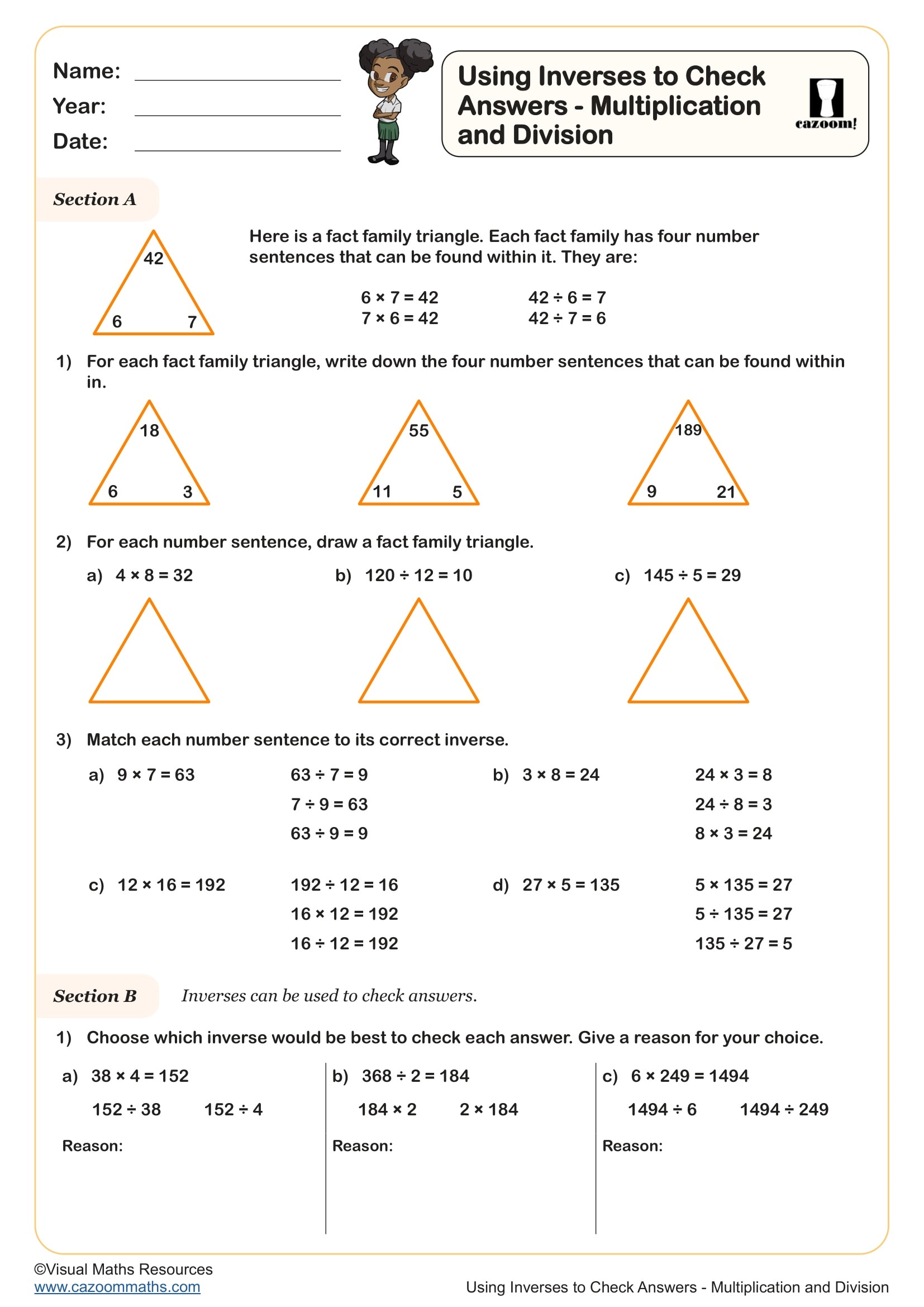
All worksheets are created by the team of experienced teachers at Cazoom Maths.
Year 5 Maths Worksheets with Complete Answer Keys
These multiplication and division worksheets for Year 5 collections focus on visual representations that make abstract concepts concrete. Each of our Cazoom Maths worksheets, created in ready-to-use, printable PDF, progresses logically from pictorial methods to mental strategies, with detailed working examples that show students exactly how to think through each step systematically.
KS2 Multiplication and Division Skills Breakdown
We've packed quite a lot into these worksheets! The progression moves from consolidating times tables knowledge through to mastering formal written methods. Students particularly enjoy the word problems that challenge them to apply their learning in context. Here's what you'll find:
• Short multiplication using the grid method
• Long multiplication with 3 and 4-digit numbers
• Short division (bus stop method)
• Long division with remainders
• Missing number problems
• Cube numbers and square numbers
• Multi-step word problems
Building Confidence Through Structured Maths Practice
Here's what we've noticed after years of teaching: students who get consistent practice with these methods perform significantly better on their SATs and transition more confidently to secondary school. The muscle memory they develop through regular practice becomes invaluable when tackling complex problems under exam pressure.
• Builds automaticity with times tables facts
• Develops confidence with formal written methods
• Improves problem-solving strategies
• Prepares students for KS2 SATs requirements
• Creates a solid foundation for Year 6 maths topics
Everyday Uses for Year 5 Multiplication Skills
These core number maths skills appear everywhere in daily life, from calculating cooking measurements to working out sports statistics. It's actually quite satisfying when students suddenly recognise these concepts appearing in other subjects too.
• Science experiments requiring measurements and scaling
• Art projects involving ratios and proportions
• Geography works with population and area calculations
• Technology lessons using algorithms and coding
• Sports analysis comparing scores and averages
• Shopping scenarios with bulk buying and discounts